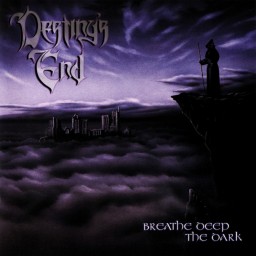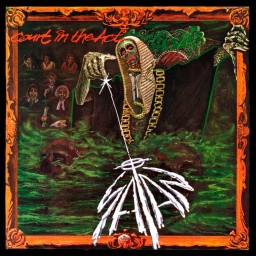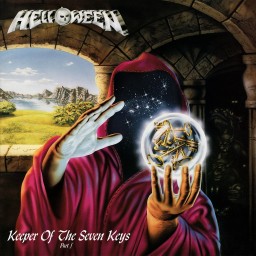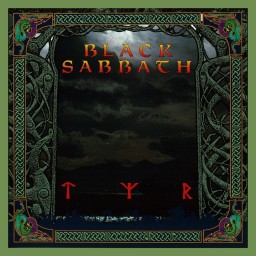Latest Reviews
Benedictum, where the f*** were you in all my years of melodic metal?! This is a band any metalhead should listen to find something classic-sounding in these modern times! And not just any band, but one that would surely kick a** and make even the unbelievers believe.
To be more specific, Benedictum is one of several bands reviving the classic 70s/80s heavy metal sound in the 2000s, plus some touches of power metal. What makes them more unique is the angelic AND devilish singing of frontwoman Veronica Freeman. And it sounds about right that she is like a female Dio (RIP). The album even includes two covers of Black Sabbath songs from the Dio era, which we'll get soon. I don't think I've heard female-fronted heavy/power metal sound this bad-a** since Sinergy.
The opening title track starts with a sinister backmasked subliminal message then rises into Sabbath-infused riffing. The chorus has a nice modern touch to balance things out. Then we get to "Benedictum", which can be considered the band's theme song. Here it starts with sinister Latin chanting then once again brings forward the blend of Sabbath and modern heavy metal in different sections. "#4" is a more progressive track with occasional odd time signature changes. The chorus has a HammerFall vibe within the chanting. "Misogyny" slows things down to a doomy pace. I like the keyboard melodies here, including the old-school-sounding synth soloing. Veronica unleashes her lyrics against those misogynistic unbelievers out there.
"Ashes to Ashes" is filled with rock-on groove. A nice song though not as magical as the others. "Wicca" is one of the most wicked tracks here. Veronica's Dio-esque range shines the most here, as does the rest of the band. But if you wanna hear how much Dio the band can add to their sound, look no further than the first of their Black Sabbath covers, "Heaven and Hell". Veronica can nail those vocals perfectly, and the riffing sounds greatly heavy, the way Tony Iommi has done in the original. Of all the covers I've heard of that song, Benedictum's take might be the best! "Them" cranks up the heaviness while including a catchy singalong chorus. Another powerful standout!
"Two Steps to the Sun" rocks out with more of that guitar heaviness. Indeed it's another more modern take on Dio's sound in both the music and vocals. "Valkyrie Rising" is the album's nearly 9-minute epic, and it shows the band in all its glory without any failure. "Mob Rules" ends this offering as the last of the two Black Sabbath covers. Again, Veronica really has done an excellent job channeling her inner Dio. As great as this one is though, the other Black Sabbath cover has a more mighty edge.
Uncreation can strike you in different moments when you're least expecting it. And those strikes are from the vocal power of Veronica Freeman, as well as the rest of the band. This is not an album or band a metalhead should go their whole life without. It's a masterpiece to tear down the conventional walls!
Favorites: "Uncreation", "Benedictum", "Wicca", "Heaven and Hell", "Them", "Valkyrie Rising"
Always love to hear Neoclassical acts that are actual bands rather than First Name Last Name guitar (or keyboard) heroes. As you might expect from a Neoclassical band, Time Requiem is filled to the brim with awe-inspiring solos that boggle the mind. But not just from the guitars.
Yes of course, the guitars are majestic. The smooth running up and down scales while essentially tremolo picking is just wild to me. Thankfully, the guitars do much more than that, offering great riffs and more traditional style guitar solos as well that offer more depth than Yngwie-style wankery. Keys are another key component (ha) to this lineup, and yeah, the keyboardist does some insane wizardry that could put any classic pianist to shame. I mean, the keyboardist is the composer, so not only is he an absolute madman at his instrument, but he’s a strong songwriter as well. Keys and Guitars duel here, but they also give each other space to show off without competing for the spotlight depending on the song.
But this album isn’t just a melodic showcase! The RHYTHM section is also flashy as hell. Obviously harder to hear, but the bassist is putting in some crazy work on this thing. It can best be heard in the mind-blowing ending to “Brutal Mentor” (which in itself is just one of the best displays of technical musicianship I’ve ever heard). And the drums! God those drums are great. Speedy, technical, progressive, and doing the perfect amount of showing off insane chops without overplaying. And of course, lets not forget the vocals. Vocalist Apollo was in one of my favorite short-lived Neoclassical bands Majestic, and he helped elevate their accessibility with fantastic choruses. He does the same here.
For anyone who enjoys technical prowess in musicianship and songwriting, a must-listen. For those who don’t, it’s thankfully full of great songs that are well-written and worth much more than their technical prowess alone.
Some nice words that could be used to describe Beyond Abilities would be insanely technical, melodic, and proficient. All the musicians here are experts at playing, and they waste no time showing that off. The keyboards are the focal point, with playing that rivals any masters of the Classical Era. Nods to Mozart are made throughout, so it’s obvious what the influences and aspirations are.
Some less kind words that could be used to describe Beyond Abilities would be sterile, emotionless, and generic. The musicians may be masters at playing, but they can’t evoke an emotion to save their lives. In fact, the only song that evokes any emotion is the cover of Alone. The songwriting is the bare minimum for Neoclassical Power Metal fare, which is quite a demanding genre; this means the band does nothing to stand out from contemporaries. The playing may be perfect, but that only goes so far. As someone else pointed out, everything sounds like it was made in a factory.
If you’re a fan of Neoclassical Power Metal, like I am, it’s a nice, enjoyable album. If you’re a fan of technical prowess exercised through music, this is admirable and probably of great interest to aspiring keyboardists. If you want something new, unique, memorable or moving, move along.
Avant-Garde Metal is one of the subgenres in which I am hardest t please. At the time of writing this, I’ve been listening to Metal for over 15 years, and haven’t awarded a single 4.5 star rating to an Avant-Garde Metal album. That is, until I took look into The Sham Mirrors.
First off, the album does something VERY important in ensuring that it’s a GOOD Avant-Garde Metal album – it’s not Circus Metal. While the album sounds bizarre and occasionally playful, it by no means ever falls into goofy territory. The arctic space aesthetic is persistent across tracks, painting a cold, surreal image of a distant future among the stars.
And then we get to the music, which is very very good. It definitely took a few listens for the non-Metal sections to grow on me (this is a very eclectic piece, with genre shifting within almost every track) but there’s a very important reason it did. You see, while each track jumps between multiple genres, they don’t feel fractured or jerky. It never feels like the band is just genre hopping for the sake of being quirky and weird. Even when shifting styles, the band retains their cold, special aesthetic. The evolution of each track feels connected, falling and rising in a fashion that feels earned. Despite the eclecticism here, there isn’t a moment that left me bored.
The Metal, which is still the meat of the album, is fantastic Symphonic Prog Metal, and the vocals, both clean and harsh, fit nicely. Drumming is fantastic, guitar leads are striking, energy is at perfect level, and tempo and intensity rise and fall to suit the music. No weak points, no wasted moments. I won’t lie and say I didn’t enjoy some sections more than others, but wow is that a well put together record, a triumph of one of the hardest genres to do well in my opinion.
A slightly heavier direction than the last albums, this one features crushing, rhythmic guitars and vocals on the gruffer side of things. Lyrics are also slightly more serious, with a few numbers about war and sombre introspection. The southern Rock tracks here are actually the best, as they force the band to craft some decent melodies and vocal lines when they can’t rely on Stoner-tinged riff and Groove chugging.
Aside from those points, it’s another Black Label Society album. Very, very Southern Metal. Passable riffs, boring drumming, mostly shallow lyrics, and a good backdrop to the type of company I would never enjoy.
Credit to “Battering Ram,” for being their heaviest and most aggressive track so far (and featuring the best riffs and drumming on the album) and to “Bridge to Cross,” for displaying the emotion and contemplation that is so scarce in this genre. Those two highlights definitely make the album worth it among the genre.
Most of the rest is unmemorable filler, a la Black Label Society’s usual fare. Decent album, fun, but lacking depth or staying power, and too long for what it offers.
Have I mentioned that Lord of the Lost's current project is a trilogy? Opvs Noir is a series of albums released in just months-long intervals, all that continue their blend of gothic/industrial/symphonic metal. I mean, we won't get Vol. 3 until this April, but at least we have the first two volumes. I've already checked out Vol. 1, and now we're gonna explore Vol. 2. Not as varied as their previous album, yet still great...
Frontman Chris "The Lord" Harms, guitarists Pi "π" Stoffers and Benjamin "Benji" Mundigler, bassist Klaas "Class Grenayde" Helmecke, keyboardist Gerrit "Gared Dirge" Heinemann, and drummer Niklas Kahl keep up their talents here. Opvs Noir Vol. 2 is the band's 11th album, and the second part of this ongoing trilogy.
Starting the album is "The Fall From Grace". Unlike the first volume's opener, it starts off gentle in the keys as the rest of the metal instrumentation drifts in smoothly. Chris Harms' vocal sorrow shines especially in the chorus. And in between the second and final choruses is some of the most intense screaming I've heard from him, in perfect contrast with the gothic bliss. "Would You Walk With Me Through Hell?" has the first of several guest vocalists here, Infected Rain vocalist Lena Scissorhands. It's one of the more industrial songs in the album, and the heavier parts are worth moshing to, particularly when there's harsh aggression from both vocalists. After all that massive power, "One Of Us Will Be Next" is a soft ballad with angelic choruses. Then "Walls of Eden" can really get people moving in concerts.
"Raveyard" is an impressive highlight of pure dance-metal fire. I especially enjoy the rapping by Kaarija. Turning up the heaviness is "The Last Star", the verses are soft so that all the energy is used in the chorus. Sadly, some of the vocals don't hit as hard as in other songs. More of the dark fury is covered in "What Have We Become", which includes more experimentation including vocals by IAMX founder Chris Corner. The baritone/growls of Harms and the falsetto of Corner make another perfect duet in the sea of industrial darkness. Then we reach the cold melancholy of "Winter's Dying Heart", an epic ballad with the instrumentation and vocals in excellent balance.
"Scarlight" starts off calm in the intro and first verse then explodes into a speedy chorus. Now, "Please Break the Silence"... Is that a more polite take on Beyond the Black's new album Break the Silence? I mean, Chris Harms has guest appeared in a song from that album and the female vocalist sounds like Jennifer Haben. Oh wait, that's Anna Brunner from League of Distortion. Still a beautiful energetic highlight! Finally, "Sharp Edges" is a soft and sweet ending track with some background noise in the climax.
So the second volume of Opvs Noir has a more experimental direction than the first. However, I feel like there should've been more of the variation Vol. 1 had. Maybe more guest vocalists? Well, Vol. 3 apparently has a little more of them, so that's promising. But until then, enjoy Vol. 2....
Favorites: "The Fall of Grace", "Walls of Eden", "Raveyard", "What Have We Become", "Winter's Dying Heart", "Please Break the Silence"
With the band having expanded their sound into more artistic territory on their second album, Dreamweaver, further emphasis on that was placed on their third, which was ironically the last thing they ever produced. Now there seems to be a kind of alienation that the fans felt, which would explain a collective of negative reviews on the internet. This alienation likely stems from the further forays into standard heavy metal, ballads and prog metal. As well, there's a new vocalist with a stronger melodic voice rather than the raspy thrash voice everyone who knows the band is familiar with. Personally, I don't think this is much of a problem. This new singer seems to fit the more dramatic side of the music that the band was going for. On top of that, the majority of this music is actually pretty good, sometimes flat out banging. These guys really pushed themselves in the creativity department, but never once make the album feel inconsistent or messy. But be prepared for a very different kind of album, this more melodic, focused and versatile album just doesn't sound like the original Sabbat at all. Having said that, they pushed that specific sound as far as it could go without breaking new territory, so an album like this was gonna happen eventually.
73
There really isn't much I wanna say about this debut album except that it's pretty basic. Everything about this debut album is a product of its time. The production and melodic quality sound a bit like this one hair metal band that went nowhere: Nitro, which my stepfather told me about, considering them one of the worst bands ever. This album might have some genre appeal for metalheads because the sound is so nostalgic, but it's too easy to compare this fuzzy 150 BPM-central thrash album to so many better albums of its type. I would even go as far as to say those two crappy Nitro albums have a couple better guitar solos in them. Our singer isn't that great, either. He sounds like a bad, noisy knockoff of the singer from Metal Church. They pull off some decent tricks throughout the album, but overall this early speed metal release is too generic for my tastes. In fact, it can be so generic that I was even getting tired of it about halfway through.
Riot started out as one of the earliest notable American heavy metal bands, but with their 6th album, they brought in some speedy power metal. NO I don't mean US power metal, although they have that too. I'm talking about the European power metal that was first building up in Germany at that time. The speed metal elements would also pave the way for Judas Priest's Painkiller a couple years later. Evil ones beware of a cyborg tank warrior made of thunder and steel. This is Thundersteel!
Nowadays, metal is judged more by music that image, so people can recognize the Judas Priest-isms more musically now, rather than visually in the 80s. You can hear the high berserk vocals of Tony Moore, the guitar work of axeman Mark Reale (RIP), the pounding drums of Bobby Jarzombek, and solid basswork by Don Van Stavern.
The lightning fast title opener shows a lot of the speedy side of Judas Priest, and it shall be praised by the Metal Gods. Also having your money's worth is the next track "Fight or Fall". There's more monstrous riffing to be found in "Sign of the Crimson Storm". It's still a metal anthem despite slowing down into the hard rock-ish sound of the band's early material, maybe even Deep Purple.
"Flight of the Warrior" is another memorable highlight. The chorus is quite awesome, as is the speedy riffing and leads. I'm familiar with that one via HammerFall's cover. "On Wings of Eagles" is also pretty great, having some of the grit of early Metallica. From the bass intro onwards, "Johnny’s Back" runs wild with its speed.
Then we slow down for the power ballad "Bloodstreets" with its heavy/mellow blend that they can pull off as greatly as Manowar and Crimson Glory. "Run for Your Life" cranks up the speed a little more in the guitar. The chorus is the best part when the vocals switch from high and low. I love it better than that similarly titled song from Fire Down Under. Now, the 9-minute epic "Buried Alive (The Tell Tale Heart)" I enjoy, but when I first listened to this album, the aforementioned opening title track was my favorite here. But as I revisit it, this epic is now my favorite! Must've been my growing appreciation for epics. Anyway, an odd voice sample leads into solitary guitar soloing similar to Crimson Glory throughout the first 3 minutes. Then the rest of the song carries on in an Iron Maiden mid-paced groove. Brilliant!
All in all, the historical value for Thundersteel is off the charts! It has the speedy melody of power metal and the glory of classic heavy metal all in one mighty masterpiece. If anyone is up for some of the earliest Euro-style power metal besides Helloween and Running Wild, it's all right here. Onward, my fellow warriors of steel!
Favorites: "Thundersteel", "Sign of the Crimson Storm", "Flight of the Warrior", "Run for Your Life", "Buried Alive (The Tell Tale Heart)"
Having completely missed his debut solo outing from five years ago, I can thank the algorithm gods for placing Kirk Windstein’s sophomore effort into my feed suggestions. With 2025 being the year that I finally got to grips with doom as a sub-genre, and with Crowbar being something of an unsung sludge favourite of mine, I soon found myself approaching Ethereal Waves with a heightened sense of excitement. Whilst I cannot profess to being massively in love with Kirk’s vocal style, his riff mentality more than floats my boat.
As expected therefore, Ethereal Waves is stocked full of riffs. Soon enough I was nodding along respectfully, appreciating the Iommi-inspired chugs as they landed consistently in front of me. Not that this is solely what the record I about by any means. Windstein has some straight up heavy metal on display here also which makes for a positive slant on the aesthetic of the album overall. For all the misery that exudes from tracks such as ‘Eulogy’ there is enough mid-paced activity, including an unexpectedly upbeat cover of The Beatles’ ‘Eleanor Rigby’, to keep things interesting. Whilst the doom credentials are hard to ignore on the album, it does contain some depth for the bullet belt and denim cut trad metallers out there.
Having former Exhorder guitarist, Vinnie LaBella provide leads, as well as producing the record, certainly adds character to proceedings along the way. Whilst not exceptional, the solos are able to paint some further emotion into songs, that makes up for the singular style approach that Kirk has around his vocals. Lyrically, the album isn’t all that strong and they do come across as half-baked, if not borderline amateur on a couple of occasions. However, I am not here for the lyrics, more the huge riffs and those enriching leads. During the past few days of listening through this album, I have at the same time been visiting Dream in Motion and I have concluded that Ethereal Waves is a step up from the debut.
Possessing more memorability than its predecessor, Ethereal Waves avoids the need for catchiness still, coming off as a more succinct listening experience as a result. The instrumentation is well balanced across guitars, percussion and keys. The Hammond Organ sound on ‘Rise from the Wreckage’ is an absolute joy to my ears. For all the positives, I still only like the album, I am not madly in love with it. Whilst it most certainly is accessible enough without being mainstream, it lacks any true bite to make it outstanding at any point. We still have a perfectly respectable album from one of sludge metals legends, albeit him showing a softer side than usual in some places.
I've certainly taken my time getting to Metallica's latest full-length but that's perhaps no surprise when you consider that I haven't enjoyed any of their albums since the Black Album way back in 1991. Things were looking up early in my initial listening experience though with Rhino Bucket guitarist Greg Fidelman's crisp & well-separated production job giving this material the chance to fully capitalize on any merit that can be found in the song-writing. The first three songs are all pretty decent too so there was some reason for optimism. Sadly though, despite being arguably the best record Metallica have produced since 1991, "72 Seasons" suffers from many of the same misguided failings as 2016's "Hardwired...to Self-Destruct".
With twelve lengthy songs spread across a gargantuan 77-minute run time, this record is incredibly self-indulgent with every idea being milked for far longer than it has any right to be. There are also more losses than there are wins here, although admittedly none of those losses are as bad as the weaker inclusions on some of their other post-Black Album releases. The tightness in the performances is part of the reason for that as this is a clinically produced record that's been meticulously compiled to be as perfect as it's humanly possible to be with each component having been layered in just the right pocket. Unfortunately, the age of the various band members is certainly showing at this point though. Jame Hetfield's vocals have been pretty annoying for a long time with little of the aggression of a record like "...And Justice For All". Lars' drumming is very basic & quite rocky, seemingly attempting to emulate AC/DC drummer Phil Rudd a lot of the time which may suit the crunchy hard rock-infused production job but was never going to afford the riffs maximum metallic incision. And Kirk's guitar solos are incredibly uninspired, seemingly having been phoned in & offering nothing much to enhance the song-writing. There are a couple of stretches that have seen me enjoying myself though &, like with all of Metallica's modern-day records, those stretches live up to their name by squeezing every last drop of value out of their instrumental & vocal hooks. The opening three songs mentioned earlier are backed up by the one-two punch of "Chasing Light" & my album highlight "If Darkness Had A Son" to give me some sort of respite from the drearier material like "Crown of Barbed Wire" & "Too Far Gone?".
Overall, this isn't a horrible Metallica record but it's not one that I'd recommend to anyone either. It's just another example of how this ridiculously popular band has become so incredibly detached from their original fanbase & any sort of reality with self-indulgence being the driving force behind their ongoing existence. Despite the inclusion of a couple of thrashers here & there, I've long since accepted that Metallica are no longer a thrash metal band per se so it's not about that. "72 Seasons" simply isn't a high-quality heavy metal album when compared with the rest of the modern-day global metal market so it's not deserving of the attention it's received from an audience that is unwilling to dive deeper than what's fed to them by the commercial media.
For fans of mid-90's Megadeth, "The Ritual"-era Testament & post-2000 Anthrax.
What is it with live shows being better than albums for some bands? Not that I would ever complain because this one is so awesome and beautiful! The power and emotion are to be checked out to believe. It's a true swan song show for the band, grand enough to make history.
X Japan is pretty much the Queen of Japan. And I mean the rock band Queen. X Japan is a band pretty much everyone in the country has adored, and the live shows can be considered an audio-visual treasure. So it was a sad day when the band announced their intention to call it quits. The band knew they had to end their journey in a proper bang, hence their concert at the Tokyo Dome on New Year's Eve 1997. It would be the final time many of 50,000 fans would see them live.
The smooth peaceful overture "Amethyst" fills the stadium, sending fans on a cheering frenzy once it begins. Soon the band members enter the stage as the noise from the crowd rises and the announcer introduces... X Japan! The band begins performing "Rusty Nail" as vocalist Toshi screams "LET'S GO!!!" in Japanese. Although this is still a heavy metal song, it has a similar vibe those J-pop rock antime themes. It's actually the first song I've heard from this band, mainly because of Dragonland's cover. "Week End" is a catchy song to get the crowd going. But then we have a tricky turn in "Scars" into mainstream electro-industrial rock. It's still a good energetic track though. The title opener of Dahlia blends heaviness with accessibility. If there wasn't any metal, it would've been more like an upbeat J-pop song, with the verses and chorus having that vibe. Then we have a quick two-minute "Drum Break" from Yoshiki. "Drain" is another more industrial track, and it actually rules! I enjoy the heavy groove despite being different from any of X Japan's albums before Dahlia. After that is a "Piano Solo" from Yoshiki to make up for not having the epic piano-led "Art of Life" in their setlist.
"Crucify My Love" is a short ballad, at least short compared to the other 3 ballads in Dahila that are each more than 7 minutes long. One such song being "Longing ~Togireta melody~" which is perhaps the greatest ballad by X Japan and one of the best ballads I've ever heard, and I'm speaking as someone who doesn't enjoy a lot of ballads. I can really feel how moving it is! And then we get back to the earlier heavy stuff with "Kurenai", still one of my favorite tracks from their debut Vanished Vision, with a total catchy headbanging chorus. The riffing and the soloing are some of the best from the band. I'm still amazed by their ability to go from a slow love ballad to a fast speed/power metal song. And that alone is enough to make that song a remarkable one, along with everything else within. And the fast speed doesn't end there, as we switch to the short swift "Orgasm". Well, the original song is short, perhaps their shortest non-interlude song. However, they've actually extended it into perhaps their longest track! Besides "Art of Life" of course. Yeah, this is the point where the tracks begin to get extended to over 10 minutes each, almost like prog-metal epics! But if you think that's impressive, get a load of Yoshiki's 14-minute drum solo. Amazing f***ing strength, just hitting those drums until he practically passes out. I sense some jealousy from Mike Portnoy of Dream Theater. While Yoshiki has some to rest, Toshi steps in to sing "Forever Love", another breathtaking ballad. In all honesty, if I was listening to ballads like that a few years before this review before restoring my interest in more melodic metal genres, I would've probably dozed off. And now I don't, I can just listen to them nice and awake.
It leads to the only short track in the second half, "Prologue", which is the intro to Blue Blood that originally has the subtitle "World Anthem". It sounds like a happy Maiden-infused march that's never a drag. It segues straight to the highlight of the entire concert, the band's own theme song, the catchy speedy "X". I'm sure the original song has planted the seed for international power metal bands like Stratovarius. The crowd really goes wild, participating as they should, with their "X" shouts and forming the "X" symbol. And as the music gets extended, it never drags. An absolute banger that never lets itself down! Amazing piano can be heard in "Endless Rain", proving that the band can make a tearjerking ballad without it coming out as cheesy sh*t. After that is another contender for one of the most beautiful power ballads ever, "Say Anything". I swear this can practically make a grown man like me cry. If you can translate the lyrics to English, you would know the tragic tale of a man's futile attempt at saving his relationship, "Say anything, you can dry my every tear". Now the thing is, the band didn't actually perform the song in this show. Really the only live thing to occur there is the audience singing along. The band was too busy handing out different gifts to the fans, as their way of saying "thank you" (or in Japanese, "Arigato"). At last we get to the aptly titled final single "The Last Song". Yoshiki begins playing his piano, and the rest of the performance is emotional history. Once it ends, the band members exit the stage one by one, and Yoshiki is the last to leave after playing the final notes. The true final song is the 10-minute ballad "Tears". It plays during a montage screening of the band over the years. And to end it all for real, an excerpt from "Unfinished" is heard, "Oh, I'm looking at you, can't control myself, nothing but pain for me." And that's the end. Happy New Year!
Fast forward to now, X Japan is back together and having been trying to make their 6th album for nearly two decades. Sadly, just a little over 4 months after their then-final show, Hide hung himself to death. It was widely believed to be suicide, but the band insisted that it was an accident. So that show was truly a heartbreaking farewell to Hide. RIP... Also, Heath passed away from colon cancer two years before this review, but he already completed his recordings for the upcoming album. RIP him too... Anyway, any fan of X Japan, metal, or music in general should encounter this live beauty. Perhaps one of, if not THE, greatest live show in Japan, and possibly the world!
Favorites: "Rusty Nail", "Week End", "Dahlia", "Longing ~Togireta melody~", "Kurenai", "Drum Solo", "X", "Endless Rain", "Curtain Call (Say Anything)", "The Last Song"
The first impression I have regarding this album is that it lacks the musical integrity Abigail has. In other words, the album doesn't sound as monolithic as its predecessor. But don't get me wrong, Them isn't bad at all. Indeed, it's one of the best albums King Diamond has ever produced. The major drawback is that in Abigail, the story and the music were so in tune and integrated that the whole album flowed like a stream, while in Them, the technical proficiency of the band and the level of progressiveness in song structures seem to level up, but this also makes the album less fluent, less memorable, and naturally, more ambitious. Even the album cover, showing a house in the night, seems to evoke "A Mansion in Darkness" in Abigail, as if pointing out an idea that the major story was told previously. Nevertheless, you still have a very good record and one of the finest moments in King Diamond's career.
Recommended songs for the first listeners:
- "Welcome Home": the legendary opener of the album - if you don't count the intro "Out from the Asylum" - and one of the most popular King Diamond songs.
- "The Invisible Guest": a song that is quite "power metal" in essence, but delights in horror! Also, many good solos.
- "Bye, Bye Missy": I think the best riff in the album opens this song.
- "Twilight Symphony": the last show in the album is there.
If you loved King Diamond at first sight, it is almost impossible to neglect Them.
When I was revisiting the music of Fates Warning, I've realized that I enjoy the earlier heavy/progressive metal era of their first 3 albums more than their subsequent melodic progressive metal era. John Arch is one of the best vocalists of the genre. He may sound annoying at first but then you realize how amazing he is with his unique voice. The vocals aren't the only great thing about this album though.
The Spectre Within is a true progressive/US power metal gem! It even has a slight edge over their next album Awaken the Guardian that other fans prefer. Their second album with they really start to add progressiveness to their US power metal sound. My first full experience with this band's material was 5 years ago. I was more focused on heavier modern metal than the more melodic old-school metal of yore. I enjoyed the music a lot but eventually got tired of it, especially the vocals. Some things need some time away from me to restore the glory, and when I came back just a few days before this review, I can hear it again as the masterpiece I first thought it was. So worth the wait!
The progressive changes begin to shine in the 7-minute opening track "Traveler in Time", one of the best tracks here and the perfect way to start. Then we have the more mid-paced while still sometimes upbeat track, "Orphan Gypsy". One track that has really gotten me excited is "Without a Trace". It sounds like a song Iron Maiden could've written, only made better and more progressive.
"Pirates of the Underground" is another long track, and it levels up the progressiveness with the structure not having a set chorus. "The Apparition" still remains as my favorite track of the album on the US power metal side, with the best vocals from Arch.
There's more of that heavy speed in "Kyrie Eleison" while having some doomy sections. The perfect grand finale is the 12-minute epic "Epitaph". It's Fates Warning's first ever 10+ minute epic that would hint at the ones they would make in later albums. It starts off all atmospheric and doomy, almost like what Katatonia would make a decade later. Then it impresses me with everything from the guitars, bass, drums, and of course, the vocals, all heard loud and clear. Absolutely memorable!
This has to be said: The Spectre Within may just be the true start to the progressive metal genre. Every metalhead should get that offering and listen to this incredible talent, especially from the vocals. It's honestly quite underrated compared to the popular Dream Theater. All praise Fates Warning!
Favorites: "Traveler in Time", "Without a Trace", "The Apparition", "Epitaph"
Dust off those hand-painted lead figures, dig out the D20s and fill your personalised, engraved pewter tankard with foaming ale, because Blazon Rites are here with their Battleaxe of +4 Damage to deal righteous retribution to the evildoers and ne'er-do-wells that plague the lives of mere simple folk. Yes, Blazon Rites leave no uncertainty as to their love of fantasy with both their cover art and their, frankly, exceedingly cheesy lyrics. But, you know what, as a one-time table-top role player myself, back in my youth, I thoroughly enjoyed this romp through the wilds and taverns of fantasy stereotype.
Musically and, to a degree, aesthetically, they remind me somewhat of Solstice, or, to be more accurate, Rich Walker's short-lived side project, Isen Torr, whose Mighty & Superior EP may have been a touchstone for BR. Vocalist Johnny Halladay very much reminds me of Sami Hynninen, to the point where I had to check that they weren't yet another project of the Reverend Bizarre frontman himself (they aren't, they are from Philadelphia). Anyone thus familiar with old Witchfinder will also realise that, in a Maiden-esque, heavy metal set-up this means there are limitations in the vocal department. For me this isn't a problem, but anyone looking for power metal hystrionics (which you may well be justified in doing considering the album's optics) you are going to be severely disappointed. In truth, Blazon Rite aren't particularly sophisticated song writers, with the opener "Autumn Fear Brings Winter Doom" probably being the pick songwriting-wise and this is an area where they leave scope for improvement. That said, they do kick out decent, fist pumping heavy metal riffs and lead guitarist Pierson Roe delivers Adrian Smith-like leads with aplomb. What they do exude by the barrel-full, though, is enthusiasm and a seemingly genuine love of heavy metal and its fantasy trappings and that is not to be underestimated in a world where musical experimentalism and po-faced seriousness threaten to crush all sense of fun out of the genre. I think us internet metal nerds sometimes forget that metal can just be entertaining and fun without us feeling guilty about not pushing ourselves with every release we listen to, or not contemplating the depths of our psyche with every lyrical musing. So crack open a beer, kick back and feel a smile crawl across your face thanks to the simple metal fare that Blazon Rite have served up here.
Until now, the only band to have 4 releases with 5-star ratings from me in a row was Kamelot. And now, another band has joined in from the extreme side of the symphonic metal spectrum, Lorna Shore! 3 years after their previous album Pain Remains, the masters of symphonic deathcore are back with their new album I Feel the Everblack Festering Within Me, continuing the sound that made them popular while adding in some surprises to keep things exciting.
The new album really is similar to Pain Remains. Elitists can put their hand down though, because as I've said just now, there are some fantastic surprises that not even Pain Remains has, which we'll get to as the review goes on. The album doesn't have a multi-track suite like that of Pain Remains, let alone have it released alongside 3 singles. Less singles, more anticipation, am I right? And guess what, there are more songs that have no breakdowns! As much as I like breakdowns, it's nice to not hear them in nearly every song. Those songs without breakdowns end up sounding closer to straight-up extreme symphonic metal, so I don't mind this album sitting in The Guardians.
For the songs with breakdowns, the track with the best one is the opening "Prison of Flesh", which is a grand rollercoaster ride through stampeding deathcore. A killer way to start this offering! With their next track and first single "Oblivion", I enjoy the music that throws back to 5 years ago in the Immortal era, along with the lyrics growled by Will Ramos. Another epic highlight! The first of the 3 tracks without breakdowns is "In Darkness", which is almost like their attempt at combining the title track of And I Return to Nothingness and one of my favorite Mechina songs "Anagenesis", including the double key-change final chorus of the former but excluding the clean singing and cyber synths of the latter. It still can't beat those two tracks though.
Speaking of the title track of And I Return to Nothingness, "Unbreakable" has the potential to surpass that as my new ultimate favorite Lorna Shore track (a couple other songs later on would take that throne, keep reading). Lots of Parkway Drive-like melody, and the lyrics are so motivational, "And after it all, our hearts are invincible, like diamonds we glow, WE ARE UNBREAKABLE!!!!" However, its throne is stolen by the next track "Glenwood" (again there's another track lurking in the shadows to take that throne). Absolutely epic and emotional, and with the lack of breakdowns, this is really extreme power-ish symphonic metal, enough to make a genuine Guardians track. More of those heartful melodies appear in "Lionheart". The melody and occasional choir adds to its uniqueness, and the breakdown is never out of place. The anthemic "Death Can Take Me" has the blackened vibe of Mental Cruelty's new album Zwielicht, while ending with another one of the most crushing breakdowns in Lorna Shore's career.
"War Machine" is another standout and a different one at that. The tempo is slowed slightly for just full-on deathly groove-thrash that can fit well in a video game like DOOM Eternal and Metal Hellsinger, especially with its "f*** enemies up" attitude. So different yet so wild! Increasing the synth orchestration is "A Nameless Hymn". It's generally Lorna Shore's take on the symphonic black metal of Dimmu Borgir and later Behemoth, though a little too pompous. At least the skillful soloing and breakdown compels me. And now comes the true ultimate best track of this album and possibly by the band, the glorious finale "Forevermore", their longest track at nearly 10 minutes, a tear-jerking atmospheric epic of triumph and emotion. Probably the best symphonic deathcore closing track EVER!!! I'm not gonna put it into words, just listen to it to believe me.
And now this masterpiece album is over, so what can we take away from it? Well, they don't make a complete turn back into their earlier sound, nor did they make an all-out Pain Remains clone. They've just taken the best of those eras and added a few new things like that one different heavier track. In their perfect 2020s melodic symphonic blackened deathcore era, I Feel the Everblack Festering Within Me might just be the best of the best. Extreme vocals, drumming machinery, blazing guitars, booming bass, and cinematic orchestration make a recipe of unbreakable epicness. And I'm grateful that something like this can be heard all over the world!
Favorites: "Prison of Flesh", "Oblivion", "Unbreakable", "Glenwood", "Death Can Take Me", "War Machine", "Forevermore"
I'm honestly a little surprised I haven't heard a lot of this band. Lord of the Lost has worked up a catalog of their gothic/industrial metal sound, and somehow that didn't peak my interest. However, things have turned out promising when I checked out their previous two albums Blood & Glitter and Weapons of Mass Seduction. And now I might get even closer with the new adventurous Opvs Noir Vol. 1!
Frontman Chris "The Lord" Harms, guitarists Pi "π" Stoffers and Benjamin "Benji" Mundigler, bassist Klaas "Class Grenayde" Helmecke, keyboardist Gerrit "Gared Dirge" Heinemann, and drummer Niklas Kahl are back at it again. Opvs Noir Vol. 1 is the band's 10th album, as well as the start of an exciting new trilogy.
Starting off hard is "Bazaar Bizarre", a majestic opener with Chris' haunting verses. The softness of those verses are in contrast with the chorus of aggression and beauty. Then it switches to "My Sanctuary", which is half the first song's length and has a dancey beat and simplistic riffing. After that is the lovely "Light Can Only Shine in the Darkness". Lord of the Lost and Sharon den Adel of Within Temptation are practically a match made in metal heaven! Her vocals shining in the band's symphonic/industrial metal sound adds a new dimension of dark yet bright serenity. "I Will Die in It" is another well-done piece of gothic/industrial metal. It's quite catchy while staying massive, as the keyboard orchestration adds in all that grandeur.
Breaking boundaries further is "Moonstruck". Chris sings and screams alongside the Stimmgewalt choir, sounding similar to Moonspell's more symphonic works. Next up, "Damage" is all about industrial metal aggression. The guest vocals by Deathstars' Whiplasher Bernadotte makes things sound more extreme. And even without that, it still sounds a lot like Deathstars. "Ghosts" is an amazing piece of beauty and intensity! I love the cello by Tina Guo here. "Lords of Fyre" is up next. Wow, 5th collaboration track and the 4th in a row! This one has good medieval industrial/rock metal, but it sounds cheesy, and bringing in Feuerschwanz is unnecessary. The only slight misstep here.
We then get into the melancholic "The Things We Do For Love". The first verse might make you think it's a calm ballad, but once in a while, it becomes destructive especially at the bridge. "The Sadness in Everything" features Anna Maria Rose, vocalist of symphonic metal newcomers Tales of Time, with her soft singing contradicting the heavy intensity. Finally, "Dreams are Never Alone" is a haunting closing track with the last of their melodic majesty.
Lord of the Lost continue their journey with a new phase starting with Opvs Noir Vol. 1. It's a promising start to this trilogy, and I especially enjoy most of the collaborations. Let's hope for more of that greatness in Vol. 2 coming out at year's end and Vol. 3 appearing next year. Bring it the f*** on!
Favorites: "Bazaar Bizarre", "Light Can Only Shine in the Darkness", "I Will Die in It", "Moonstruck", "Ghosts", "Dreams are Never Alone"
With my recent return to The Guardians, I've become more determined to discover more heavy/power metal that's either brand-new or I haven't heard before but wish I had 10 years ago when those two genres were my main focus. This month's Guardians feature release is worth continuing my journey. It's time to check out this band Blazon Rite and listen to them sing their Wild Rites and Ancient Songs!
It's quite a promising album with tough instrumentation and melodic writing. I also love the song titles, even though they all look like those AI-generated song titles with at least 5 words each. Considering the amount of bands who get put down for any alleged usage of AI, I just hope this band doesn't get wrongfully accused.
We already get to a great start that isn't so weird and cheesy with the opening track "Autumn Fear Brings Winter Doom", which made me remember a band I haven't heard of in a few years, Slough Feg. Then "Salvage What You Can of the Night" cranks up the tempo. The chorus is worth singing along to in determination. Next song "The Fall of a Once Great House" slows things down for a bard-sung waltz before speeding up again in the second half.
"Mark of the Stormborn Riders" is more midpaced while driving the riff melodies forward. The title track has an acoustic intro then carries on in a marching pace and ends up in wild speed for a power-ish heavy metal song.
We have blazing speed in "Troubadours of the Final Quarrel". In the modern age of metal, not many people expect epic melodies within the way of classic heavy/power metal, but bands like Blazon Rite still have their exciting glory. And finally, there's the epic wonder of "The Coming Tide of Yule". It's probably the most Christmas-like melodic metal song since some songs by Trans-Siberian Orchestra and Majestica's Christmas Carol. That should be worth listening to in the holiday season!
I enjoy what Blazon Rite has had to offer Wild Rites and Ancient Songs. It's great hearing this band bring more life to a style of metal that has withered decades after its highest peak. This offering shall appeal to listeners wanting more epicness and melody in metal without any cheese or orchestra. It's a Blazon Rite of passage!
Favorites: "Autumn Fear Brings Winter Doom", "Mark of the Stormborn Riders", "Troubadours of the Final Quarrel", "The Coming Tide of Yule"
Poets and Madmen is Savatage’s swansong and in my opinion, their most underrated work. Jon Oliva returns for sole vocal duties on this album, and I personally am thrilled. As great as Zak is, Jon is simply my preference due to his much rawer, aggressive yet passionate delivery. The album is still a concept album in line with their recent works, but a bit looser and less… pompous, let’s say. It sounds like a good old fashioned Heavy Metal record.
The compositions here are undoubtedly among the best of the band’s career. There are riffs for days – both on guitar and keys, and no shortage of memorable vocal lines either. The songs are quite progressive in nature, shifting tempos often and packing each track with a great selection of riffs and rhythms.
More striking than that though is the emotion. There’s anger, pain, melancholia, and a bit less hope than most Savatage records. This one stays pretty strictly in pessimistic, almost apocalyptic territory, lamenting the state of the world both globally and personally. It culminates in closing track Back to a Reason, which is in my opinion the finest song the band ever wrote, evoking intense emotional passion and desperation across 6 minutes of melodramatic progressive epic.
It’s not as flashy as the Zach era and it’s much more somber than their earlier works, but it’s a magnificently written album that closes out their discography perfectly. Also, classic Heavy Metal this good in the year 2001 was extremely hard to come by; Savatage sticking to their roots and dropping this was a great move and gave future bands a worthy template for the new millennium of Heavy Metal.
After having found their style on Theli, Therion have not only maintained their key Symphonic Metal style, but continued moving towards making their composition grander and more operatic. Almost every song here is led by choral vocals from multiple vocalists, layered in a way to deliver power and grandeur. Symphonic elements actually aren’t as prevalent as one might expect, providing more of a backdrop of smooth layers while the choral vocals take front and center stage.
While the compositions have become more dense and epic, in my opinion, the core Metal instrumentation (Guitar, drums, and bass) have suffered a bit. There are some nice guitar leads that sound Gothic influenced, and decent riffs here and there, but overall the album relies a bit much on the choral vocals. Another problem there being… it just sounds a bit too happy? Or uplifting, I guess. Yeah, there are darker parts to the music and lyrical themes, but choral vocals are layered in a way where they sound more religious than dark or ominous. Just doesn’t work for me too well.
The concept of the album revolves around the nine realms of Norse mythology, and each song has a significant identity due to this, as both lyrically and musically the compositions work well to embody the different chapters and landscapes. Anyone interested in said mythology or concept albums in general should appreciate the work there.
At this point in their career, Therion have an undeniable level of quality that goes into every song. For me personally, I’m simply not in favor of the direction they’re going, completely abandoning their dark extreme Metal roots in favor of more lighthearted, uplifting, vocal-driven compositions.
The debut album from Sweden’s Lost Horizon sounds more like an experienced band at the peak of their career. How they managed to compose and record something with such astute quality right off the bat is a mystery to me.
Many people have lauded the album for being one of the MOST Power Metal albums ever recorded. Indeed, Lost Horizon go above and beyond in every aspect of their delivery. The guitars are wild, speedy and neoclassical, melding aggressive riffing with fantastically melodic leads and solos. The drumming is ever changing and technical, taking a lot of progressive influence and incorporating it into classic, thunderous Power Metal blasts and gallops. The bass is surprisingly excellent and audible, grooving up and down the fretboard like a third lead guitar to add another layer of melody and progression. And then of course there are the vocals; an over the top, melodramatic call to arms filled with just as much power and force as they are with melody. The only thing missing are dedicated keys… but the four piece are so strong that they make you forget that more often than not.
The meat of the album is the perfect mix of what makes Power Metal good, and many of the songs have no flaws to speak of. Exceptionally well-written, expertly performed, memorable, strong, catchy, pummeling, triumphant… the list of what this band does right goes on and on.
I have to come to one of my pet peeves though. Useless interludes. The album has three of them. And at ten tracks and 44 minutes, 3 of those tracks and 4 minutes of the runtime being interludes hurts. While one is a decent New Age piece, the other two are really bad Ambient Drone tracks. Just, why? Why do bands do this? Lost points there.
It lives up to the legends, otherwise. A phenomenal piece of work., and amazing debut album.
The Ghostlights saga consisting of this album and the previous one The Mystery of Time mark the best balance between complexity and simplicity that I enjoyed when I was listening to Avantasia 10 years before this review. And I still love it! This also makes up for when founder Tobias Sammet transfered pretty much all the power metal from his then-main band Edguy to Avantasia, turning Edguy into more of a hard rock/metal band. Ghostlights can very much brush aside the mistakes from Edguy's last few albums, and it still holds the reign as the best album by Avantasia and any project by Tobias Sammet! There is more lively punch, and the guest vocalists (a typical aspect for the project) add to the theatrical vibe. Sure there might be some simplicity, but it's all balanced out by the large emotion.
Some of the f***ing best writing by Tobi occurs in this offering. There's a lot more of the symphonic power metal you would expect from Avantasia with only slight touches of old-school hard rock/glam metal, making tunes of metallic variation. Besides Tobi and co., a few songs have guitarwork by Bruce Kulick and Oliver Hartmann, totally crushing it with their riffs and leads. And there's some great guitar by Sascha Paeth too. Everything sounds so catchy and powerful, giving the songs more life. If you're listening at home via speakers, it would be like watching a movie, or at least hearing a movie.
Opening track "Mystery of a Blood Red Rose" is filled with soulful majesty in the strings and a catchy chorus. This more hard rock-ish sound is almost like Meat Loaf (RIP). In fact, they were planning on having Meat Loaf guest appear in that song, but that never came through. So it became just a solo song for Tobi. "Let the Storm Descend Upon You" follows, and it's a massive 12-minute epic! There's killer riffing and synths alongside vocals that includes the album's first guest vocalists; Jorn Lande (ex-Masterplan), Ronnie Atkins (Pretty Maids), and Robert Mason (Warrant). Things starts off brooding before building up gradually to the great climax, all while staying upbeat. So glorious! As part of the band's more ambitious motives, they include a couple slow songs such as "The Haunting", perhaps the best song in that category, sounding theatrical and including guest vocals by Dee Snider (Twisted Sister). Then "Seduction of Decay" is more progressive, even more so with the vocal work by Geoff Tate (ex-Queensryche).
The speed then comes back up with another grand highlight, the title track. It has some of the best melody, and the singing by Michael Kiske (Helloween) rules as he alternates with Lande. Another one of my favorites with nothing weak about it! Next up, "Draconian Love" has some haunting hypnotic verses sung by Herbie Langhans. Those vocals by Herbie remind me of Type O Negative, although he has a greater, more varied vocal range, proven when he later joined Firewind. The chorus explodes into great dynamics. "Master of the Pendulum" is another kick-A track featuring the talented Marco Hietala, formerly of Nightwish. On top of that, both the song and its title have total Nightwish vibes, with the title similar to one of Nightwish's epics, "The Poet and the Pendulum". The next song, "Isle of Evermore" is a strong ballad, better than many of their previous ballads. Within Temptation vocalist Sharon den Adel can sing greatly, but I often wonder why she only sings in the ballads, like in The Metal Opera albums. I just hope in a later album, she can sing in a heavier upbeat track. Such as "Babylon Vampyres", a rifftastic highlight with some more vocals by Mason.
"Lucifer" starts off sounding like a piano ballad with Lande's vocals then rises into great blazing speed in the guitar. Then "Unchain the Light" has an out-of-this-world chorus sung by Atkins and Kiske. "A Restless Heart and Obsidian Skies" closes the main album, sounding quite melodic with vocals by Bob Catley (Magnum) and a great chorus. As f***ing strong as the start of the album! "Wake Up to the Moon" is a bonus track that's more melodic and rock-ish with splendid vocals by many of the vocalists.
Ghostlights is a brilliant masterpiece album with all the emotion it has to offer. If you're up for a metal opera album with various guest vocalists, this is it. This is THE SH*T. I'm still shocked to have forgotten this gem for so long. A gem of ghostly melodic wonders!
Favorites: "Let the Storm Descend Upon You", "The Haunting", "Ghostlights", "Master of the Pendulum", "Babylon Vampyres", "A Restless Heart and Obsidian Skies", "Wake Up to the Moon"
Not gonna lie, this review is one of the hardest ones I've ever done. I had to try to find the complete compilation so I could listen to all it in one go a few times, and Spotify does not have all the songs in the compilation. And whenever I do these compilation reviews, I had to really think about the songs from each of 5 albums rather than just one. This probably would've been easier if I was still into Edenbridge and other symphonic/power metal bands like I was nearly a decade before this review. But it's all worth it!
The Chronicles of Eden is one of the most essential compilation albums for a band. The first disc has mostly bonus tracks for their first 5 albums, and the second disc has two full songs per album; one greatest hit and one 8+ minute epic, mostly longer than each track from the first disc either way.
Starting off the first disc with bonus tracks from The Grand Design (the album with the most bonus tracks by far), "Thin Red Line" has some of the progressive melody of Seventh Wonder. "The Silent Wake" is more mid-tempo, but it's like a blend of Firewind and Visions of Atlantis. "Images in the Sand" is a soft piano/strings instrumental. Then comes their awesome cover of Sheena Easton's "For Your Eyes Only", the theme song for that James Bond film, keeping the relaxed ballad vibe without ever sounding lame. Their name is Bridge... EDENbridge. Interestingly, "Evermore" appears in this disc even though it's already in the original album. It's still a beautiful shining single! "Empire of the Sun" is another instrumental track, this one more guitar-focused and a little long for an instrumental, at over 5 minutes in length.
Before we get to the bonus tracks from Shine, there's a radio edit for its 9-minute opening title epic, reduced to around half its length. It's quite risky reducing a masterpiece epic that's perfect in its original form into a short single, but uitimately it's still the catchy hymn it is. "On Sacred Ground" is softer with more usage of symphonics and flutes that can practically rival Epica's ballads. It's also a nice break from power metal bands like Powerwolf whose ballads and heavier songs rely on organ. Then we have another bonus track that was once a rarity, another uplifting guitar-focused instrumental, "Anthem". Now we heading to the Aphelion bonus tracks, starting with "On the Verge of Infinity" which again has similar vibes to fellow Austrian symphonic power metallers Visions of Atlantis. Same thing with "The Whispering Gallery". Concluding with the Arcana bonus tracks, "The Whisper of the Ages" has gotten me hooked with the exotic sitar and a great chorus. "Velvet Eyes of Dawn" is one more rarity worth discovering.
Now it's time for the second disc, and if you're bummed out that their debut Sunrise in Eden doesn't have any bonus tracks, the two tracks that start the album and this disc shall make up for that, starting with its title epic. The oriental melodies are so majestic in this mid-tempo track, along with the harmonic soloing and one of the most glorious choruses by the band EVER. The original album didn't start with that epic, instead starting with the track before it, "Cheyenne Spirit". It's filled with neoclassical power metal greatness. It stands out with the vocals and the soloing from both the guitars and bass. As much as the track sounds so uplifting and wonderous, the lyrical theme is more serious, concerning the historical tragedies of early American civilization. As awesome as those two previous tracks are, they're nothing compared to the title track of Arcana, which I sh*t you not, is one of the most melodic epics I've heard in my over a decade of listening to metal. Wonderful guitar flow and more of the vocal power of Sabine Edelsbacher. Her singing can range from operatic to full-on siren. And we can't forget the guitarwork by Lanvall and Andreas Eibler often going from melodic to complex. Nothing else I can about that glorious epic can do it justice. The shorter but more progressive "The Palace" has many different stunning ideas. Catchy vocals and guitar/keys interplay never lose steam. Absolutely promising! Aphelion started with "The Undiscovered Land" which is a popular live staple worth mentioning. But it can't beat the album's closing track, "Red Ball in Blue Sky", despite its odd title. Sabine duets with Royal Hunt vocalist D.C. Cooper, making another beautiful epic.
Eastern melodies once again cover "Wild Chase" from the Shine album, and it has great power for a midpaced song. It's nice that they consider the haunting interlude "The Canterville Prophecy" as part of an epic, though it would make sense if they connect together. Still, "The Canterville Ghost" has interesting variation and climatic soloing. Then we get to the longest epic of this compilation, the title track of The Grand Design, soaring through the majestic cosmos for over 10 minutes, and summarizing all the original album has. But it's not the total end of the compilation, until after that album's opening track "Terra Nova", one more beautiful song of hopes and dreams.
If you prefer just a regular album, Shine and The Grand Design are both excellent albums. If the bonus tracks in The Grand Design don't convince you to give that album a try, I don't know what would. And even Aphelion is good despite being the least strong one of Edenbridge's early offerings. Either way, these chronicles are totally essential!
Favorites (one per album per disc, except for Shine/The Grand Design bonus tracks): "The Silent Wake", "For Your Eyes Only", "Evermore", "Shine (radio edit)", "On Sacred Ground", "On the Verge of Infinity", "The Whisper of the Ages", "Sunrise in Eden", "Arcana", "Red Ball in Blue Sky", "Wild Chase", "The Grand Design"
Within a Sunrise in Eden, a Cheyenne Spirit Forever Shines On in Holy Fire. She flies with Wings of the Wind in the Rainy Midnight at Noon, pleading "Take Me Back to My Last Step Beyond!" Ascending in Starlight Reverie from The Palace in a Moment of Time, she will Fly on a Rainbow Dream and Color the Sky with Velvet Eyes of Dawn. The Whisper of the Ages flows into the Light of Suspiria through the Winter Winds of Arcana. The Undiscovered Land can be found Skyward before The Final Curtain of Perennial Dreams. She will Fly at Higher Game As Far as Eyes Can See beyond the Whispering Gallery on the Verge of Infinity. A Deadend Fire can be found Farpoint Anywhere Where Silence Has Lease under the Red Ball in Blue Sky. Maybe she will Shine and Move Along Home as a Centennial Legend. However, after a Wild Chase, the Road Goes On with What she'll Leave Behind Elsewhere. Under the October Sky is the Canterville Prophecy and Ghost on Sacred Anthemic Ground. Terra Nova conjures a Flame of Passion Evermore in the Most Beautiful Place. However, she is Seen Fading Afar from the Top of the World before being Taken Away in the Grand Design. The tale of the Empire of the Sun is for Your Eyes Only as Thin Red Lines make Images in the Sand at the Silent Wake.
Whew! What a story I made, based on all the song titles in the first 5 Edenbridge albums including this one. A solid tale of fantasy to balance out with the boring reality of what really happened. The truth is, Edenbridge formed in 1998 in Austria, named after a Formula 3000 racing team. They made the goal to board the female-fronted metal train alongside their more popular peers in Nightwish, early Dark Moor, and Within Temptation. They made their solid start with their first two albums Sunrise in Eden and Arcana, took a small dip in quality in Aphelion, then went back up high in Shine. In 2006, the band kept up their higher game in The Grand Design. It's a grand near-perfect masterpiece. Recording took place in several different studios across Europe; in their homeland of Austria, the UK, the Netherlands, and Germany. A few different studio visits in different countries come with a few guest musicians joining in, including Dennis Ward and Robby Valentine providing background choir vocals. The other guests would each have their own chance to shine in a different singular track. And the beautiful cover art was made by Thomas Ewerhard.
"Terra Nova" is a beautiful opening highlight of hopes and dreams. Karl Groom (founding guitarist of Threshold and known for contributing to bands like DragonForce) adds in his own guitar solo. "Flame of Passion" has more of a gothic-ish symphonic metal sound to remind some of Tristania at that time. Soft acoustic verses with the serene singing of Sabine Edelsbacher come in, as she sings "It never rains, but it pours". The chorus is catchy and pretty in its midtempo pace. I enjoy the melodic soloing. And the song ends with a literal bang of a firework. "Evermore" is another beautiful shining highlight, released as a single. Next track, "The Most Beautiful Place", touches your heart with a beautiful ballad consisting of just piano and Sabine's singing, "You are always inside, wherever I roam". Soft strings enter the second verse before a final chorus and ending literally on a high note from Sabine.
The guitars fade back in for "See You Fading Afar". The drums join in for fast pounding, only slowing down to let Sabine step in with her smooth vocals in the verses. Her harmonies rise over the background male vocals by Dennis Ward, similarly to D.C. Cooper's contribution to the Aphelion album, but never really upfront. The keys sound gothic in the bridge, fitting well with the guitar heaviness. Sabine's singing reaches a high climax in the chorus before everything stops except for the guitars that fade out. The guitars and vocals sound so bright and uplifting in "On Top of the World", which I prefer a lot more than that similarly titled Imagine Dragons (s)hit. The memorable chorus is so out of this world. "You'll be on top of the world!" Her vocals get isolated for a moment before some soloing. I never realized a "gothic" sound can sound so happy! The final chorus unleashes some male/female vocal harmonies, then after singing the song title one last time, the song ends right there. The next track "Taken Away" is another piano ballad, but dark gloom replaces the previous song's bright mood. Again, there's not much besides that piano and Sabine's singing. However, the chorus is quite strong, and we have Robby Valentine's background vocals. Then the soft piano floats by once more. Then we get to the title track, soaring through the majestic cosmos for over 10 minutes, and summarizing all this album has. Also, expect some acoustic strumming by Martin Mayr and violin by Astrid Stockhammer, Lanvall's young sister.
The Grand Design is the album with the most bonus tracks by far for the band, and you don't wanna miss out on the edition that has them all, starting with "Empire of the Sun". It's a guitar-focused instrumental track, a little long for an instrumental, at over 5 minutes in length. Then comes their awesome cover of Sheena Easton's "For Your Eyes Only", the theme song for that James Bond film, keeping the relaxed ballad vibe without ever sounding lame. Their name is Bridge... EDENbridge. "Thin Red Line" has some of the progressive melody of Seventh Wonder. "The Silent Wake" is more mid-tempo, but it's like a blend of Firewind and Visions of Atlantis. "Images in the Sand" is a soft piano and strings outro to end the journey.
All in all, The Grand Design is a celestial melodic work of art. Sometimes it's great to take a break from reality and have a wonderful adventure through fantasy. With many memorable ideas, this album is an amazing well-done gem by these Austrian metal legends!
Favorites: "Terra Nova", "Evermore", "On Top of the World", "The Grand Design", "Empire of the Sun", "For Your Eyes Only", "The Silent Wake"
I am a big fan of this Parma five-piece and was stoked to see they had a new album out, with minimal fanfare from the metal world, a long six years since previous offering "The Wolves of Thelema". Their brand of doom metal sits smack-bang between the stoner and the epic, with a wide streak of occult psychedelia, in the vein of The Devil's Blood, running through it's dark heart.
They have a quite distinctive sound, chiefly down to mainman Dorian Bones' vocals which come on like a mixture of the gothic flavour of Paradise Lost's Nick Holmes and the expansive epicness of a Robert Lowe. Over the previous decade and a half they have also become exceedingly proficient at writing more memorable, uptempo doomy riffs that are likely to be rolling around your head for hours after the record stops spinning. The rhythm section is exceedingly solid, with both drummer Mike De Chirico and bassist Henry Bones solidly and unshowily driving the tracks along and providing a solid foundation on which everything else is built.
The opening one-two of the punchy and catchy "Scarlet Love" and the slower and doomier "Aiwass Calling" sees the album kick off in fine style with two of the album's strongest numbers. Most of the tracks are mid-paced affairs, but the band do include a couple of slower, more doom-laden numbers with the aforementioned "Aiwass Calling" and the penultimate "Fire Walk With Me" being well-placed to prevent the album from sounding too samey. I feel there is a bit of a drop-off in the middle, though, with side one closer "Antikristos" and side two opener "Beyond Daath" not really hitting the spot for me. "Antikristos" feels like the band are fishing to catch the Jex Thoth / Devil's Blood crowd and "Beyond Daath", despite having a decent riff, leans too much into the occult theatrics vocally. Luckily things pick up with the album's doomiest (and my favourite) track "Fire Walk With Me" imparting a bit of class before closer "Interstellar Snakes of Gold" rounds things out with a melodic chorus and nice riff.
As much as I enjoyed Spiritus, I find myself being reluctant to impart a top-tier score. The main reason for this is the lack of adventure the band display, particularly in the restraint with which the guitar leads are deployed and their willingness to stick to the same old formula which has, admittedly, served them very well over the years. I think the album is lacking a really good solo or two with the leads mainly used to add melody over the riffs when I couldn't help feeling that on a couple of occasions they could have really let rip, but feel constrained by the tight discipline of the songwriting. The closing section of the aforementioned "Fire Walk With Me" is the only really extensive solo and even that feels like it is being held in check when it should howl and soar.
In truth, I don't need a band to constantly be pushing the envelope and redefining themselves for me to enjoy them, but sometimes they can be found sitting just a little bit too comfortably and I feel like that about Caronte at this point in their career. There are some good tracks here, but it feels to me like there is a little too much filler too with "Antikristos", "Beyond Daath" and "Interstellar Snakes of Gold" almost feeling like a band going through the motions and I hate saying this about a band I enjoy as much as I do Caronte.
If anyone has tried to convince me a few years ago to give some power metal albums like this another shot, I probably would've said "I'll think about it" and left that request in the dust. But now that I'm back in The Guardians, with the playlists making me feel more confident about the clan than during my break from it, it's time for another spin.
Dark Moor's 3rd album The Gates of Oblivion is still one of the best albums of power metal that isn't DragonForce or Kamelot. Ever since my first time listening to it over a decade away, I've been mind-blown by all those riffs, melodies, choruses, and solos, all sounding so catchy and technical. And with those fantasy lyrics, it's the kind of cheese that I can have in my system. From start to finish, it's an incredible journey to love and appreciate!
Beginning the album is a true kick-A example of power metal, "In the Heart of Stone". Lots of speedy riffing, plus great vocal melody from Elisa C. Martin. She can go from tough to serene and back again in the blink of an eye. The verses sound epic, as does the chorus with its fantastic leads. "A New World" doesn't lose any power from the previous track. It opens with incredible riffing followed by mystical keys that leads to more of the furious verses. The mood stays strong as Martin belts out her highs in the chorus. The soloing by founding guitarist Enrik Garcia is one of the best here. It's an unforgettable journey to remember, just like Christopher Columbus' discovery of America that's detailed in the lyrics. The band's neoclassical influence shines in the title interlude, a f***ing beautiful keyboard instrumental. "Nevermore" is based on the works of Edgar Allan Poe. "Starsmaker (Elbereth)" is a heavier gem, though it starts with a lovely acoustic intro and maintains the melodic beauty for another adventure. It's like a mighty battle between vocals, guitars, and keys. Then we have another epic memorable chorus. You can consider the whole song a story of sorts!
"Mist in the Twilight" is another keyboard interlude. It leads to another one of my favorite tracks here, "By the Strange Paths of Destiny". Incredible guitars and keys here! The riffing power is in perfect balance with the keyboard magic. The soloing is filled with versatile energy. And we have beautiful vocal power from Martin in the chorus which has a glimpse of upfliting light in the midst of the dark sorrow. A true hard-hitter! Next, "The Night of the Age" has more atmosphere for Martin to shine in the spotlight. The solos and riffs are quite excellent and don't mess with the brilliance of Martin's vocals. Everything's well-paced! Well, her vocals are a little restrained in the verses but it's made up for by her impressive highs in the chorus. Wonderful speed before the next track that is a ballad... "Your Symphony" is a beautiful ballad. Nothing sappy. Just keys, acoustics, and singing, all that stir up the vibe of a forest fairy's tale. It's a ballad that's meant to be in the album, unlike those other ballads that disrupt the flow of the albums they're in.
The last leg of this album starts with "The Citadel of the Light", one more interlude that sounds like something from the Old School RuneScape soundtrack. It segues to "A Truth for Me" with some of the most anthemic verses of the album. Then at last, we reach the epic climax of this offering, "Dies Irae (Amadeus)", paying tribute to Mozart's works. The most incredible guitar technicality by Garcia is one of the many things that make this Dark Moor's most fascinating epic. As incredible as this is, I feel like there could've been slight trimming to tone down some of the repetition. Still I wouldn't change a thing, and it's all worth it in the end. One tiny miniscule flaw won't weigh anything down. The Russian edition comes with the bonus track "The Shadow of the Nile" which is great but could've been put before the epic instead of after.
All in all, The Gates of Oblivion is Dark Moor's finest hour of power metal reflection. Sadly, they would never replicate the magic, with all members except Garcia leaving the band the following year before the recording their self-titled 4th album, though bassist Anan Kaddouri would stick around for that then leave too. Martin would move on to other bands such as Dreamaker and Fairyland. Her replacement, Alfred Romero is great at singing as well, but just not as magnificent as Martin. The Gates of Oblivion is one of the most essential albums of power metal. If you're a power metal fan who hasn't heard this album, you should. See you at the gates!
Favorites: "In the Heart of Stone", "A New World", "Starsmaker (Elbereth)", "By the Strange Paths of Destiny", "The Night of the Age", "Dies Irae (Amadeus)"
My grand experience with Symphony X's 7th album Paradise Lost has made me up to revisiting more to this band's albums. One incredible place to start is Twilight in Olympus, which is yet another classic that I've listened to since over a decade ago and still remember its glory. And considering how much I was into the modern classical works of Two Steps From Hell before switching to metal, no wonder I loved bands and albums like this masterpiece back then!
This can be considered the "Thomas" album since it's the last one with former bassist Thomas Miller, and drummer Jason Rullo was temporarily replaced by Thomas Walling (RIP). I say this is the transition album between the neoclassical era of their first 3 albums and the power-ish progressive era of the 3 albums after this one.
Some of the best progressive metal to surpass Dream Theater occurs in the opener "Smoke and Mirrors", one of my favorite tracks by this band. All we have in the structure is the mundane verse-chorus that ends up getting a grand enhancement, displaying the band's skills without having to make a half-hour epic. The neoclassical madness of this band Symphony X may be hard for simple guitar listeners to understand. But there are great guitar solos to learn such as the one around the 4-minute mark, performed by the impressive Michael Romeo. He often duets with keyboardist Michael Pinella, creating a sea of melodies. The riffing is not what you often hear in melodic progressive metal. Also I love the melodic singing by Russell Allen. He never goes as ridiculously high as other power metal vocalists, and sometimes he sounds nicely rough for the thrashy sections. And oh yeah, the awesome bass by Thomas Miller is audible. I'm not sure why "Church of the Machine" started with an industrial noise-ridden intro, but that doesn't matter. The heavy verses are in perfect balance with the chorus that almost turns the song into the band's own "Bohemian Rhapsody". The ending is quite abrupt, but again it doesn't matter. It just leads straight to "Sonata", a short instrumental take on Beethoven's Piano Sonata No. 8.
"In the Dragon’s Den" shows that the band can kick a** with the progressive neoclassical metal sound. Sometimes, melody doesn't have to be as deathly as Dark Tranquillity and In Flames. You can get it from bands that are meant to sound like Symphony X, Stratovarius, and Nightwish. Short songs balance out against longer epics like this next track... "Through the Looking Glass" is a long melodic track, following the band's trend of having at least one long epic since their debut and carrying on to subsequent albums. It lasts for 13 minutes and follows the "FantasMic" idea of 3 parts with the last being the heaviest. It ends up getting a bit repetitive towards the end, but still great.
Next up is another short fast track "The Relic", complete with a perfect chorus. The riffing aggression carries on into "Orion - The Hunter" alongside amazing vocals in the verses. I'm not too fond of the soloing, but once again, the 5-star album rating stays intact. Similarly to the previous album, this one ends with a haunting ballad, "Lady of the Snow". Nice singing by Russell Allen and guitarwork by Michael Romeo. That's how metal ballads should be. Melancholic, not happy-sappy.
Twilight in Olympus has been quite a progressive journey through fantasy and mythology ala power metal lyrics, all poetic with only a small tasy dash of cheese. Romeo and Miller are two main songwriters in this album, but with Miller gone, Allen would take his place in the songwriting department. That early era ends as a new one begins!
Favorites: "Smoke and Mirrors", "Church of the Machine", "In the Dragon’s Den", "The Relic"
I really need to thank my brother for getting into this band and giving me the spark of massive interest that didn't ignite until just recently. Volbeat was formed by frontman Michael Poulsen in 2001 after disbanding his previous band Dominus, having enough of his former band's death metal sound and wanting to start anew. Volbeat's name comes from Dominus' 3rd album title. When checking out or revisiting some bands/albums, it's good to follow your heart, and you might just find a gem of sheer greatness!
I really love Volbeat's first two albums. But if there's one album that I think would surpass the other by a few percentage points, it's this one, Rock the Rebel/Metal the Devil. It really seals the rock/metal gone rockabilly deal and would be an awesome recommendation for one of my rock/metal-loving pals.
We roll right into "The Human Instrument", a favorite of mine and my brother's, proving that Elvis metal works like a dream. The kick-A power is still kept up in "Mr. & Mrs. Ness", continuing the story that started in the debut album's "Danny & Lucy". The song hints at the band's heavier side in their next album Guitar Gangsters and Cadillac Blood, in which the story continues again. The next track is the popular half-ballad half-rocker "The Garden’s Tale". I actually love this song! It's probably because I was never in Denmark nor the United States in 2007 when the song was played to f***ing death. It's quite catchy as f***, pretty much breaking down the wall between slow-dancing and moshing. Vocal hooks cover the devilishly fast "Devil or the Blue Cat's Song".
Now if you're looking for a punchy banger, look no further to "Sad Man’s Tongue". It starts with acoustic country that would have Johnny Cash fans swooning, then f***ing speeds up into metal including a kick-A breakdown that you can't resist headbanging to. "River Queen" tops it off as another groove-ish banger. If I wasn't into this kind of metal 10 years ago, I would be listening to that song and the opener a sh*t-ton of times! Up next is "Radio Girl". I don't love it as much as many people do, but it still rules. "A Moment Forever" is fast as a motherf***er!
Next up, "Soulweeper #2" is another sequel to a song from the debut. This one still holds the romantic vibe of the first "Soulsweeper" song. If you thought the first track was the most Elvis-like metal song, it's nothing compared to "You or Them". Something that may seem a little goofy ends up turning godly! Ending track "Boa (JDM)" crushes everything in its path, leaving behind nothing but debris by the time it's over.
All in all, Rock the Rebel/Metal the Devil has added the cherry on top to Volbeat's beginning one-two punch of albums. The grooves, riffs, bass, drums, vocals, and lyrics are all a f***ing blast to listen to. I highly suggest showing them to your friends for a taste of what real music is like!
Favorites: "The Human Instrument", "The Garden’s Tale", "Sad Man’s Tongue", "River Queen", "A Moment Forever", "You or Them"
If I remember right, I've heard of Volbeat over a decade ago via a few music videos and this band being one of the bands my brother still listens to today. As great as they sounded, their sound that mixes rock, metal, and rockabilly hadn't really stood out for me, since I prefered power/symphonic metal at the time. And wow, I... I've never realized how essential their first two albums were for me. They're so incredible, and I can certainly raise my horns and bang my head to this music.
The Strength/The Sound/The Songs is one of the aptly titled albums I've ever comes across. The sound and the songs all have their strength with this diverse blend of genres. It's practically like late 90s Metallica but way better!
We already get to a h*lla catchy start with "Caroline Leaving". Then "Another Day, Another Way" has a similar pace to Hatebreed's mid-tempo songs in the instrumentation. "Something Else or..." is a softer track similar to Queensryche's ballads. "Rebel Monster" has greater heaviness and speed, perfect for the mosh pit. Then we have "Pool of Booze, Booze, Booza" with its catchy sing-along chorus to make a party rock anthem (none of that LMFAO bullsh*t).
One of the best songs here is "Always Wu". The riffing and vocals really have that metalized rockabilly vibe alongside another chorus worth singing along to. The riffing slows down without sacrificing any heaviness in "Say Your Number". Then "Soulweeper" is a ballad-ish track that you can sing to your romantic partner and have them singing along too. The speed goes back up in "Fire Song", which is filled with heavy fire. Then we have another fast catchy track, "Danny and Lucy (11 PM)", which cranks up the rockabilly side of the band for some rock-on fun.
"Caroline #1" builds up some great momentum as we enter the album's final third. "Alienized" keeps up that pace. The mood changes with their cover of Dusty Springfield's "I Only Wanna Be with You". What makes it so unique is, it can make your raise your horns to the riffing while also singing it to your love. The eerie riff that starts "Everything's Still Fine" is so strong and crushing. "Healing Subconsciously" ends the album with one of the most climatic closing tracks in standard heavy metal.
All in all, Volbeat's debut is an album for all open-minded listeners. Whether you like classic rock n roll, modern rock, metal, and hardcore, you're bound to find something you like, from rifftastic bangers that kick a** to love ballads that don't suck a**. I'm glad to finally get the strength from those songs after all these years!
Favorites: "Caroline Leaving", "Rebel Monster", "Pool of Booze, Booze, Booza", "Always Wu", "Fire Song", "Caroline #1", "I Only Wanna Be with You", "Healing Subconsciously"
Epica is one of the most epic bands around, a symphonic metal band that touches on other genres including gothic, progressive, death, thrash, power, and folk metal. Members have come from other bands such as After Forever and Trail of Tears. You might even think of this band as a more extreme Nightwish, particularly in the growls and deathly riffing. The band has reached their epic height in their 4th album Design Your Universe.
This album follows The Divine Conspiracy with a couple new members. guitarist Isaac Delahaye and drummer Ariën van Weesenbeek (as an official member). The lyrics deal with culture, physics, and the freedom to protect your world and, y'know, design your own universe!
It starts with "Samadhi", a wonderful intro to hint at the epicness to come. "Resign to Surrender" continues the "A New Age Dawns" saga that started in Consign to Oblivion. It's a brilliant way to open up the world of Epica for anyone new. The vocals alternate between the growls of Mark Jansen, the operatic cleans of Simone Simons, and occasional choir. Also the instrumentation is more extreme-sounding than their earlier works, easily blending deathly heaviness with symphonics without going just all-out Fleshgod Apocalypse. Next song "Unleashed" is the first single, a beautiful heavy banger. Then we have another catchy heavy single with a great chorus in "Martyr of the Free Word". Another highlight is "Our Destiny", which is a solid mid-paced track, similarly to Within Temptation. Honestly it's quite underrated.
And then comes the true highlight, "Kingdom of Heaven", a 5-part 13-minute epic that serves as the literal centerpiece of the "A New Age Dawns" saga and would itself spawn a couple sequels in subsequent albums. It has practically everything, all extreme, symphonic, and even some acoustic. It's their own attempt at an Opeth-like progressive epic that ends up paying off well! There's nothing in this masterpiece album that would make it lose its perfection, but one things that comes REALLY close is the interlude "The Price of Freedom". I feel like this one could've been removed or at least attached to the next track. "Burn to a Cinder" burns away that mistake as another one of my favorites here. And it's followed up by ANOTHER one of the best songs here, "Tides of Time", one of the few ballads I truly love. It sounds so beautiful, expecially with the heart-touching vocals of Simone Simons. This is the kind of beauty I prefer to hear instead of this Disney Frozen sh*t.
"Deconstruct" puts an end to the relaxation with its melodeath-ish riffing. Would've been nice to hear some soloing too, but I won't mess with it. "Semblance of Liberty" is the heaviest track here, like really hitting hard and fast. Then we have one more ballad "White Waters", a soft duet between Simone Simons and Sonata Arctica's Tony Kakko, working out almost as well as Nightwish's live duet with Kakko in From Wishes to Eternity. The title finale is another long epic with vocal perfection, all the way up to its glorious ending climax. The "A New Age Dawns" saga would continue in their new album Aspiral.
Design Your Universe is the best you're gonna get from Epica, maybe even the year of 2009. Not too epic for the heavy fans, not too heavy for the epic fans, JUST RIGHT. It's a legendary experience that would surely spawn some universal inspiration!
Favorites: "Resign to Surrender", "Our Destiny", "Kingdom of Heaven", "Burn to a Cinder", "Tides of Time", "Semblance of Liberty", "Design Your Universe"
What makes an album perfect is the amount of creativity, talent, and passion the band has. In my attempt at wanting to focus on more modern and heavier metal genres, I ended up forgetting about the symphonic power metal masterpieces that have all that for a great dose of magic. Power of the Dragonflame, the 5th album by Italian band Rhapsody (of Fire), is one of them. This is an hour-long prime example of the genre and has pleased me as much as many fans and critics.
Power of the Dragonflame is the final part of the band's first conceptual storyline, the Emerald Sword Saga. And what a way to end it! The symphonics of their first two albums and the aggression of the two albums after are in perfect balance. There's more of the shredding guitarwork of Luca Turilli and the orchestral keyboards of Alex Staropoli, sounding excellent as ever. Pretty much all the metal songs have strong talent from each of the members. Not just the guitars and keys but also the drums by Alex Holzwarth, the audible bass by session member Sascha Paeth, and of course, the vocal power of the versatile Fabio Lione.
One of the best symphonic/power metal intros in the apocalyptic "In Tenebris" that strikes you down to the ground like a gigantic fist. Then "Knightrider of Doom" explodes with some of the best aspects of the band. The title track punches with its speedy riffing. "The March of the Swordmaster" is a anthemic march to get you pumped with a mighty chorus and melodic soloing. RISE! DIE!! SACRIFICE!!!
"When Demons Awake" is a total chiller. The horrendous battle is described via more blackened instrumentation and vocals. Who knew Fabio Lione could go blackened growls so well? "Agony is My Name" is a great highlight that continues unleashing the most fantasy-filled power metal without ever sounding cheesy or sh*tty. "Lamento Eroico" (Heroic Cry) marks the band's first fully Italian song. It's a heart-touching ballad that I've been coming across a lot of lately. My return to The Guardians has made me realize that not everything has to be heavy to delight me.
"Steelgods of the Last Apocalypse" has more of the band's usual aspects, this time with some progressive turns to break the conventionality of power metal. "The Pride of the Tyrant" continues displaying the amazing skills of Turilli. Yet another wonderful composition! And it all comes down to the final epic... The greatest conclusion to this 5-album saga is the 19-minute "Gargoyles, Angels of Darkness". It's one of the best songs ever by the band and the epic to end all epics! The complex variation is perfect all the way. It starts with an acoustic intro that's almost like Opeth's softer moments then blasts off into some of the most emotional vocals, most cinematic keys and choir, and the most searing soloing. Then it all ends with a reprise of the intro that then literally explodes and collapses into windy ambience. The perfect ending for this saga!
Power of the Dragonflame is another one of the most impressive symphonic power metal albums that I'm glad to revisit. Believe me, this is for anyone into power metal and any other kind of music. You'll definitely want to get your hands on this emerald gem!
Favorites: "Knightrider of Doom", "The March of the Swordmaster", "Agony is My Name", "The Pride of the Tyrant", "Gargoyles, Angels of Darkness"
Avenged Sevenfold began as a metalcore band in their first two albums. Their debut Sounding the Seventh Trumpet had more of a raw hardcore-leaning sound compared to any of their subsequent works. Vocalist M. Shadows was practically screaming his head off in almost every song. Then came a different direction in their second album Waking the Fallen. They cranked up the metal in their metalcore in the riffing, melodies, and atmosphere. Shadows' cleans became more prominent while mixed with his screaming. Some claim that the reason for the absence of screaming in this album City of Evil is because he blew his voice while performing in Warped Tour 2003 and had to go for surgery. Well that myth has been busted, as he had actually planned to abandon screaming altogether since between those first two albums.
Despite discarding all of their earlier metalcore, City of Evil is an amazing near-masterpiece of metal! Almost every track I've enjoyed and still do since revisiting this band after so many years. It's basically the classic heavy metal of Iron Maiden and 90s Metallica given a better modern twist. Shadows sounds the best when he's channeling his inner Bruce Dickinson and James Hetfield. Lead guitarist Synester Gates performs some of the greatest soloing and riffing I've heard that can almost rival DragonForce. And there are many melodic moments to adore, including orchestra in some tracks without heading too deep into symphonic metal territory.
"Beast and the Harlot" is the first track and already it can get a lot of listeners hooked. The intro includes some background screaming by Shadows that would only seldomly being used in the album. The only slight flaw is in the chorus, but the rest is a grand starting highlight. "Burn It Down" is also great, especially in the breakdown and soloing. The chorus is a bit more problematic than in the first track though, with Shadows' vocals sound a little too nasally. "Blinded in Chains" is not really the best track, though there's nothing bad about it. It continues the great speed of the previous track, but it ends up slightly draggy and out of whack. "Bat Country" makes up for the previous two tracks' mistakes by being a fun standout that many fans know. Awesome Maiden-style verses and singalong chorus there!
"Trashed and Scattered" is another fantastic song to love. The edgier vocals going well with fast melody makes the song sound like a Waking the Fallen outtake, and I mean that in a great way. The chorus is a bit rap-ish, yet enjoyable like the rest. "Seize the Day" is more of a power ballad. It's still good, but more likely to be appreciated by a ballad-loving listener. It can definitely remind some of Guns 'N' Roses' ballads. Shadows and Gates are practically the Axl Rose and Slash of this band, respectively. "Sidewinder" begins an epic trilogy of long songs that make my top 3 favorites of this album. Great chorus and Latin-sounding outro! "The Wicked End" cranks up the epicness further. The apocalyptic lyrics suit this track well. More of the heavy metal greatness comes in, leading up to beautiful orchestra cover the last third of the track to take your breath away. And as much as I would consider that track my favorite, one more would take the throne...
"Strength of the World" is the album's 9-minute ultimate epic. The spaghetti western-sounding intro sounds like the start of a Wild West cowboy's journey. Then the rest has the power metal-ish sound similar to other bands from my early days of metal, especially in the chanting chorus. Magnificent! However, there are two more tracks starting with "Betrayed". Despite being a bit draggy, it has solid guitarwork. "M.I.A." is another 9-minute epic but not as good as that other one. Still, great soloing and ending!
Avenged Sevenfold has proven themselves to be a gamechanger in the 2000s American metal scene. I can really recognizing the originality this band has. Slight problems aside, City of Evil is a classic that has aged well after 20 years!
Favorites: "Beast and the Harlot", "Bat Country", "Trashed and Scattered", "Sidewinder", "The Wicked End", "Strength of the World"
The first 3 Nightwish albums are a trio of symphonic power metal classics that I enjoyed to death over a decade before this review. I still love them, but I don't find them as perfect as I thought they were back in those times when my love for power/symphonic metal was in an all-time high. I decided to revisit many of the tracks from those via their first live album, From Wishes to Eternity. And let me tell you, I was blown away by this incredible release!
The concert was recorded in Tampere on December 29, 2000, just a few days away from the technical start of the new millennium. Being part of the Wishmaster tour, the setlist mostly consisted of songs from that album and a few from their first two. I love the serene voice of Tarja along with the masterful work of the instrumentalists.
"The Kinslayer" is a rifftastic way to start the show. The lyrics are based on the Columbine school shooting. The bridge is interesting as Tarja's singing alternates with spoken vocals by Ike Vil to practically recreate a talk between the killer and the victim. "She is My Sin" opens the original Wishmaster album before the previous track. The drumming is some of the heaviest I've heard in that album. Tarja's magical vocals continue to shine, especially in the chorus. I also love the soloing here. "Deep Silent Complete" is nice and catchy, calming things down while staying heavy. Wonderful atmosphere and vocals! Then we come to the song with the darkest heaviness in this earlier era, "The Pharaoh Sails to Orion". It features the deep growls of Tapio Wilska (Sethian, ex-Finntroll), speedy keys, and Egyptian lyrical themes. That's Oceanborn's epic!
"Come Cover Me" starts off calm and mystical then carries on with the usual heaviness. Tarja's vocals can be d*mn heart-touching in this amazing track. "Wanderlust" is a great song, but not the total best. There's nothing bad or skippable about it, but it's outshined by the other songs. Many parts of that track I still enjoy including the chorus and the keyboard soloing. It segues to the exclusive instrumental medley "Crimson Tide/Deep Blue Sea", taking some melody from the soundtrack of those two films and practically making it their own. Awesome! Then it segues to "Swanheart", a perfect ballad for me (a personal rarity). Such slow beauty after all that heavy might.
And now we get one of the tracks from the debut Angels Fall First, that album's opener "Elvenpath". It is a fast heavy power metal song from their most folk-ish beginning album. It segues to the 3rd part of Wishmaster's epic "FantasMic", and the heaviest part of that epic. I kinda wish they would perform the entire song though. "Dead Boy's Poem" is another ballad, and one you can't criticize easily. There a great chorus and superb soloing, the latter after a spoken bridge by a young boy named Sam Hardwick.
"Sacrament of Wilderness" has greatly heavy riffing, slightly different from the melody you'd expect from this band. The 3-track encore starts with "Walking in the Air", a cover of a song from the animated special The Snowman. Another slow ballad, though it gets heavier as the song progresses. "Beauty and the Beast" has nice vocal variation. The original has keyboardist Tuomas Holopainen singing the male vocals, but here they're done by Tony Kakko of Sonata Arctica. Then at last, we come to the true finale, the title track of Wishmaster. Epic chorus, beastly guitars... This still reigns as one of my favorite Nightwish songs today. I can hear Dragonlance/Lord of the Rings lyrical influences.
The DVD comes with some bonus content. Not just the video recording of the performance, but also some hilarious off-stage footage, two music videos, two separate live videos, a couple interviews, and a 50-photo gallery. However, the music itself is worth the price of admission. If you're into symphonic power metal and/or Nightwish, I would highly recommend this perfect live offering. The best glimpse of their early discography in their best form. Don't miss out!
Favorites (two per album, plus one new track and one half-track): "She is My Sin", "The Pharaoh Sails to Orion", "Crimson Tide/Deep Blue Sea", "Swanheart", "Elvenpath", "FantasMic (Part 3)", "Beauty and the Beast", "Wishmaster"
After an incredible experience with Nightwish's first live album From Wishes to Eternity, I immediately felt up to making a full revisit of the album the band was touring for, Wishmaster. Seeing how much I enjoy the songs in this album in live form, I thought maybe I would get the same glory in this album that I considered a classic over a decade before this review. And I still enjoy them all! Well, the songs that were performed live. The remaining few, ehh...
I think the slight issue is, this is around the time the band started becoming more pop-ish in their songs. However, most of these are balanced out by the heaviness and bombast. The catchy choruses hold many of them up and lessen the needlessness of repetition.
"She is My Sin" opens the album quite strongly. The drumming is some of the heaviest I've heard in that album. Tarja Turunen's magical vocals really shine, especially in the chorus. I also love the soloing here. It is followed by the rifftastic "The Kinslayer". The lyrics are based on the Columbine school shooting. The bridge is interesting as Tarja's singing alternates with spoken vocals by Ike Vil to practically recreate a talk between the killer and the victim. "Come Cover Me" starts off calm and mystical then carries on with the usual heaviness. Tarja's vocals can be d*mn heart-touching in this amazing track. "Wanderlust" is a great song, but not the total best. Nothing bad or skippable about it, but it's outshined by the better highlights. Many parts of that track I still enjoy including the chorus and the keyboard soloing.
"Two for Tragedy" is a ballad. The fact that it's a ballad is not the problem. I like the nice flute and keys, leading up to when the guitar, bass, and drums enter. The thing is, the lyrics sound a bit forced and it's a little too slow. Those could've been improved so that it's doesn't just sound like a pop ballad with guitars. Luckily it leads to the anthemic title track. Epic chorus, beastly guitars... This still reigns as one of my favorite Nightwish songs today. I can hear Dragonlance/Lord of the Rings lyrical influences. What's preventing from giving this album a rating beyond 4 stars is the next two tracks, starting with "Bare Grace Misery". It tries to bring back the energy of the heavier side of Angels Falls First but doesn't please me enough. "Crownless" is, I hate to say, the worst track here. While having more of the power metal part of the sound seems cool in theory, it sounds too cheesy for me now, especially those 8-bit-ish synths. Pretty much the DragonForce "Ring of Fire" cover of this album, I used to love it, but now, f*** that.
"Deep Silent Complete" is nice and catchy, calming things down while staying heavy. Wonderful atmosphere and vocals! "Dead Boy's Poem" is another ballad, but this one you can't criticize easily. There a great chorus and superb soloing, the latter after a spoken bridge by a young boy named Sam Hardwick. "FantasMic" is a fantastic epic paying tribute to the animated works of Disney. It really packs a powerful punch, especially in the final 3 minutes. Absolutely perfect! The 2007 reissue comes a few bonus tracks including one studio track "Sleepwalker" that's worth that extra mile. The other two bonus tracks are different live renditions of "Wanderlust" and "Deep Silent Complete".
If it was up to me, I would give "Wanderlust" and "Two for Tragedy" some heavier power, replace "Bare Grace Misery" and "Crownless" with "Sleepwalker", and remove those unnecessary bonus live tracks. Still I shouldn't change too much. The rest of Wishmaster has some of the best symphonic power metal hits you could ever wish for....
Favorites: "She is My Sin", "The Kinslayer", "Come Cover Me", "Wishmaster", "Dead Boy's Poem", "FantasMic", "Sleepwalker" (bonus track)
When I was listening to Within Temptation and other symphonic/power metal bands over a decade ago, I thought Mother Earth was their best album. But ever since I've moved out of those metal genres into the more modern/heavy ones, my earlier revisit of that album made me not find the glory it once had. However, with my return to The Guardians, I've once again found my best Within Temptation album, but it's not Mother Earth. It's this one, The Unforgiving!
In my earlier melodic past, I didn't think The Unforgiving was super awesome. A couple tracks were too pop-ish for me back then. Now that I've experienced some time with more alternative bands before moving back to The Guardians, I enjoy them a lot more now! The album makes a perfect balance between epic and mainstream.
The intro "Why Not Me?" consists of just Two Steps From Hell-esque orchestration and narration by Dawn Mastin. That intro sounds like something out of Agatha Christie's Marple, Downton Abbey, or any other British drama series. Already heading into the band's different direction is "Shot in the Dark", including a new aspect that had barely done before by the band; guitar soloing. "In the Middle of the Night" is a catchy banger to get you pumped and jumping. The intro riffing almost made me think of "115" from the Call of Duty: Black Ops - Zombies soundtrack. Absolutely great vocals to enjoy there! Interesting how "Faster" is the name of a more mid-tempo song. When that track was released as a single before the album, it was the first sign of their new direction; the usual symphonic metal but heavier and more poppy than their previous albums like The Heart of Everything. That motive is similar to what Lacuna Coil were doing at that time, but in a better, more focused light. That song has really grown on me more than the other tracks, with its tasteful strength and less of the orchestral bombast bands like Nightwish seem to have relied on.
The exciting energy cools down for the first of a few ballads in the album, "Fire and Ice". Then comes what I still consider one of the best standouts in Within Temptation's career, "Iron". It's so heavy and epic, right from the intro riffing onwards. The song itself reminds me of DragonForce's "Cry Thunder" and it's better at that than those poor rip-offs like Warkings' cover of that song and Sabaton's "Union". Next track "Where is the Edge?" doesn't strike me as much as the highlights, but it's still a nice throwback to what the band had in The Silent Force. "Sinead" brings back the Nightwish level of orchestra while continuing the mainstream direction.
"Lost" is one of the few ballads I would ever truly love, filled with beauty, melancholy, and tearjerking acoustic/electric soloing. "Murder" cranks up the orchestration again, making something eerie and cinematic. "A Demon's Fate" is really fast and complex, making another memorable song. It's like the previous album's "Hand of Sorrow" gone The Phantom of the Opera! "Stairway to the Skies" is the ending ballad like in most of their albums. However, instead of just orchestra and vocals, the whole band is here!
There are many risks Within Temptation have gone through stylistically such as going the concept album route, going more mainstream, and adding in guitar solos. But the changes paid off! The Unforgiving is perhaps truly the most well-written album they've ever done. An unforgivingly fantastic blend of accessibility, epicness, and heaviness!
Favorites: "In the Middle of the Night", "Faster", "Iron", "Lost", "A Demon's Fate", "Stairway to the Skies"
Well this is interesting. I gave this Blind Guardian album some listening before selecting it as The Guardians feature release to start off 2026, and I thought it was good but not their best album, giving it a 3.5 rating. Then as I listened to it again for this reviewing section, the power metal spark I had within me ignited brighter, as it already has been in the past few months. I ended up boosting my rating up a whole star! I think my Guardians light is finally shining the brightest in so many years.
Their first album in 7 and a half years (not including their orchestral album Legacy of the Dark Lands), The God Machine is a true comeback for the Bards. 30 years after Somewhere Far Beyond, they've resurrected their heavier roots from that album that would be re-recorded two years later in this one. It's a show not to be missed out on!
"Deliver Us From Evil" opens the album with great bombastic power metal, throwing back to their magnum opus Imaginations From the Other Side. The vocal tone is almost the closest vocalist Hansi Kursch has gotten to his thrashy shrieks from the late 80s. The heavy "Damnation" deviates from the previous albums' epicness for darkness and speed. And then we have the mid-paced epic "Secrets of the American Gods". It sounds straight out of Beyond the Red Mirror with its orchestral grandeur. Beautiful!
The harmonic speed comes back in "Violent Shadows", further departing from the mid-era symphonics. It's filled with the violent thrashy speed metal sound from their late-80s era. Next track "Life Beyond the Spheres" is the previous one's polar opposite, more bombastic and mid-paced. EPIC! "Architects of Doom" follows up on the previous track's massive slow sound at first, then cranks up the riffing speed. We all know how top-notch the guitar duo Andre Olbrich and Markus Siepen can be. Siepen has the usual fast riffing rhythm while Olbrich executes kick-A soloing, proving that his talents are still sky-high as they were in the 90s.
"Let It Be No More" has the most of Kursch's vocal grace. However, the song itself is a power ballad. While that's not a problem (as proven by my thoughts on the ballads in Imaginations From the Other Side), this one doesn't sit totally well with me. Still I love it more than in my prior listens of this album, and that's another reason for my rating boost. "Blood of the Elves" has more of that heavy speedy power metal ala Somewhere Far Beyond. The closing track "Destiny" is also not as strong as the rest, but it's OK.
Blind Guardian shall be hailed as Germany's original leaders of power metal, alongside Helloween, though I've strangely known the former longer than the latter. Anyway, each Blind Guardian album has a different unique twist in their sound while staying the way they are. For The God Machine, it's all adding the speed they had in their first 5 albums to their bombastic era of the new millennium. This kind of balance is quite rewarding and gets better in every listen, whether gradually or suddenly. Not many bands can still have their greatness 3 or 4 decades into their career, but the Bards can. So come enter The God Machine!
Favorites: "Deliver Us From Evil", "Secrets of the American Gods", "Life Beyond the Spheres", "Architects of Doom", "Blood of the Elves"
So I've just moved out of The Gateway back into The Guardians, and there's no better time than now to revisit one of the greatest albums in power metal, Blind Guardian's Imaginations From the Other Side. This was one of the most important albums for me when my power metal interest was at its height 10 years before this review. If you enjoy 90s power metal, you've come to the right place!
Power metal allows your imagination to run wild through these themes of fantasy, sci-fi, and sometimes reality. And classics like this one (following the fantasy theme) are no exception. Imaginations From the Other Side marks the beginning of the complex structures from subsequent albums while having some of their earlier speed.
The opening title track is one of the best album openers and power metal songs I've heard in my life. It picks up where things left off from the end of their previous album Somewhere Far Beyond, this time with more atmospheric structure. The vocal density would be further displayed in the next album Nightfall in Middle-Earth, as well as those harmonic guitar leads. EPIC!!!! "I'm Alive" takes the band's earlier sound further alongside occasional acoustics, a strong upgrade from the speed of Follow the Blind. I'm not as much of a ballad lover as I used to be, but another one of the greatest highlights is the short and soft yet epic "A Past and Future Secret". Unlike "The Bard's Song", this sounds like a true bard's song in the acoustics, orchestration, percussion, and Hansi Kürsch's clean singing, with the lyrics based on the legend of King Arthur.
"The Script for My Requiem" is the closest we have to the melodic speed metal of Battalions of Fear. "Mordred’s Song" has a blend of acoustic and electric guitar. The folk-ish vibe maintains the similarities to "The Bard's Song". If "A Past and Future Secret" is this album's "In the Forest", then "Mordred’s Song" is this album's "The Hobbit". Then we have another fast song in "Born in a Mourning Hall". The monstrous riffing gives that track more in common with Tales from the Twilight World while having some melodic leads later used in Nightfall in Middle-Earth and lyrics against televangelism. The music might remind some of a blend of Black Sabbath and 80s Metallica.
"Bright Eyes" has more anthemic triumph within the lurking darkness. There's even some twisted keys appearing in the verses to add to the eerieness. "Another Holy War" is filled with pure riff-wrath, while making way for the usual melodic chorus. The precise drumming by Thomas Stauch is what gave power metal a more speedy light. "And the Story Ends" has a truly epic chorus hinting at the grandeur of their later symphonic era. The guitars and vocals are the stars of this simple yet spectacular show.
I think we can all agree that Imaginations From the Other Side is Blind Guardian at their very best. Such a shame that I broke away from this album and this band when I had that long on-off hiatus from power metal and other Guardians genres. But now I can remember the glory of this masterpiece that is the transition album between the speed era that ended with Somewhere Far Beyond and the symphonic era that started with Nightfall in Middle-Earth. The risks the band face when making this album has paid off. It's an essential recommendation for both longtime power metal fans and the newcomers wanting to explore more of the genre. See you on the other side!
Favorites: "Imaginations From the Other Side", "A Past and Future Secret", "Born in a Mourning Hall", "Bright Eyes", "And the Story Ends"
My first time listening to Sabaton was over a decade ago, and to this day, I'm quite impressed by how different they are to other power metal bands. Besides the powerful soloing and catchy choruses, there's also a bass-baritone vocalist and lyrical themes of historical wars, breaking the power metal rule of epic fantasy lyrics and falsetto singing. Imagine this conversation between a kid listening to this band and their conservative parent: "NO METAL!!!" "I'M LEARNING HISTORY!" "Oh OK."
Heroes is the epitome of Sabaton's heroic power metal deeds! Sabaton's historical war themes concept has been given more emotion than in their previous albums Coat of Arms and Carolus Rex, making this offering their best masterpiece.
Already starting with epic power is "Night Witches". It has the upbeat heaviness best experienced in The Art of War. The rhyming lyrics are also great. A fun start before the more mature seriousness of later tracks. "No Bullets Fly" flies by with some retro-ish vibes. This is followed by another solid track in "Smoking Snakes". Further dominating is the anthemic "Inmate 4859", so simple yet packing a punch.
Another highlight worth mentioning is the single "To Hell and Back". It starts with a flute melody before another epic heavy experience. It's more midpaced while staying strong in the chorus, lyrics, and even synthesized brass. The best part is the short yet sweet guitar solo. There's just so much power in these 3 and a half minutes! I just wish the band would make long epics, not just radio-sized songs. The closest we have to a Sabaton epic is "Rise of Evil" from Attero Dominatus. The aptly titled "The Ballad of Bull" is one of the most emotional Sabaton songs ever. Then we're back to rifftastic action in "Resist and Bite".
We then have "Soldier of 3 Armies" which is more adventurous despite the somewhat restrained formula. Some Black Sabbath-ish stylings appear in "Far From the Fame" in a heavier fashion plus the usual deep vocals. Another favorite of mine, "Hearts of Iron", closes the original album by marching into the horizon.
There are a few bonus tracks, but we'll just tackle the ones available on Spotify, starting with "7734", a D-tuned re-recording of a song from Metalizer. The next bonus track "Man of War" is an homage to Manowar, referencing many of their songs. I like it, but at times it feels like fan-service, albeit if the fan-service involves shirtless metal warriors instead of scantily clad anime girls. At least we have a strong epic Metallica cover, "For Whom The Bell Tolls".
All in all, Heroes shows that Sabaton are indeed power metal heroes. Not as much as my own heroes as DragonForce, but still. They're a great band with their own unique twists in power metal. Learn history or be history!
Favorites: "Night Witches", "Inmate 4859", "To Hell and Back", "Soldier of 3 Armies", "Hearts of Iron", "7734", "For Whom The Bell Tolls"
As much as I enjoy symphonic deathcore, we really need more symphonic METALcore. Metalcore or melodic metalcore would really go well together with the epic orchestra of symphonic metal, and yet that almost never happens. It's always symphonic deathcore! DEATHcore!! DEATHCORE!!! Except for one of the most epic bands around...
Hope for the Dying's official full-length debut masterpiece Dissimulation is an album in which the "epic" label fits in quite appropriately. Before recording this album, the band made a self-titled release that was released as an EP then repackaged as a studio album released via Strike First Records. The band would then be signed to the label's more well-known older sibling Facedown Records. Just imagine Unearth and All That Remains with more progressive structures and Two Steps From Hell-esque orchestra.
The adventure begins with the intro "Exordium" which is the most Batman-sounding intro in a Revolution album besides Make Them Suffer's debut Neverbloom. Then to start the last third of the track, the metal guitars take the stage, rising from riffing to shredding. It makes the perfect transition to "Vacillation" with all its extreme technical speed. The screams and cleans are all in brilliant balance, already giving you all of this album's greatness to come. Then it all fades to orchestra and piano to get you ready for a heavy transition into the next track. "Orison" is another perfect flowing track. Note that all the tracks segue into one another similarly to BTBAM's Colors.
"Transcend" has that TSFH-sounding orchestra alongside some of the progressiveness of Queensryche gone heavier. The orchestra makes its bombastic flow through the heavy guitars, drums, and vocals. 4 and a half minutes in, a shredtastic solo is unleashed by slowing down in glistening melancholy. The sorrow bleeds into "Imminent War" starting with an acoustic intro before blasting into metal once again. "Perpetual Ruin" again has that "epic trailer music gone metalcore" motive.
And then we come to the glorious 15-minute 3-track suite, "The Awakening". Each one has different focus on an aspect, with the title track of the suite emphasizing the piano and strings, the title track of the album adding in some more shredding plus some female singing, and the third part "The Veil Lifted" closing the suite in both melancholy and progressiveness. The most vicious song of the album, "Vile Reflections" blasts away through metal yet again. Then it all ends with "Desirion", starting soft in the piano before the last bit of blasting metal gone orchestral and then wrapping things on a light symphonic note.
Dissimulation may not surpass Trivium's In Waves for the eternal reign of my personal best albums of 2011, but it's still one of the best that I wished I had discovered sooner. The older fans would get a kick of nostalgia while still sounding fresh the newer fans including myself. Orchestral metalcore is a sound that should've caught on a lot more. A must-have for anyone up for something both epic and extreme!
Favorites: "Vacillation", "Orison", "Transcend", "The Awakening" (full suite), "Vile Reflections"
Re-recording albums can cause some mixed reactions from a band/artist's fanbase. Some enjoy the idea of earlier songs getting a more modern production, while others prefer just hearing new songs. Sadly, we live in a world where people can easily judge something before giving it a try. One other suspicious thing was the timing; at the same time as this release was announced, his former band Helloween embarked on the Pumpkins United tour that saw the return of Kai Hansen and Michael Kiske, but not Roland Grapow. Turns out it was a big coincidence, since Roland began working on the project a couple years before that tour.
Not gonna lie, the name of this album PumpKings almost made me laugh. I guess that's another reason for fans' suspicions. All I'm gonna say is, this album is a great way to revisit some Helloween classics, with Rick Altzi's vocals guiding you through alongside the other members. The songs are mostly from Pink Bubbles Go Ape, Chameleon, and Master of the Rings, plus a few other songs Roland has written in his remaining albums with the band.
I can already hear what would influence Masterplan's earlier material in the speedy "The Chance". That track and "Someone's Crying" kick things off greatly. Another gem "Mankind" has been given a heavier treatment, especially considering it's from one of Helloween's albums with the least power metal.
One of the two songs from the least metal Helloween album Chameleon, "Step Out of Hell" is also made heavier while still sounding rock-ish. "Mr. Ego" isn't as quick as much as it's quirky. But then we get into high-gear with another one of my favorite tracks here, "Still We Go". A more crushing track is this one from The Dark Ride, "Escalation 666", filled with the mid-paced heaviness that would shape up some of Masterplan's more well-known material.
Rick Altzi really channels his inner Andi Deris in the powerful "The Time of the Oath". Then "Music" comes on. Originally another metal-reduced track from Chameleon, it was given quite a heavy enchantment and turned into a magical highlight. The vocals here are quite amazing, though I admit that it's almost like if it was covered by a tribute band. "The Dark Ride" is the 9-minute epic in which Altzi really striking through with his vocals, despite not having the same power as Deris or Kiske. The closing track, "Take Me Home" takes away some seriousness, but it's fun hearing Roland pull off some guitarwork from his ex-Helloween bandmate Michael Weikath.
All in all, I find PumpKings a great album yet not the best part of Masterplan's discography. Some songs could've had more magic or could've been replaced with Helloween's earlier classics, similarly to Rhapsody of Fire's Legendary Years. Still it's meant to represent Grapow's era. We should also be grateful for Masterplan's existence that would continue the darker heavier sound he wanted to make since The Dark Ride. PumpKings is for fans of Helloween and/or Masterplan, better if it suits what you really like....
Favorites (one song per original album): "Mankind", "Still We Go", "The Time of the Oath", "Music", "The Dark Ride"
It's always been this band's plan, their masterplan (haha), to create memorable power metal for the new millennium. Roland Grapow has had that plan ever since he formed the band following his ejection from Helloween alongside his bandmate, former drummer Uli Kusch. Several lineup changes later, the only longtime members left still standing are Roland and keyboardist Axel Mackenrott. But with a new lineup, comes the English translation for this album title, a "new beginning"...
Novum Initium introduces members Jari Kainulainen (bass), Martin Skaroupka (drums), and Rick Altzi (vocals), best known for their work with Stratovarius, Cradle of Filth, and At Vance, respectively. In this attempt at representing the band with a different lineup, there are still great strengths while having slight weakness. One upside is, some of the more rock-ish parts are discarded to make way for more of that pure power metal sound, also reducing some progressiveness. The only thing closer to the rock side is the vocals by Rick Altzi, who seems to be more flexible with the sound than Jorn Lande. Still the speed is set aside a couple times for the more melodic and slower tracks.
"Per Aspera Ad Astra" (Through the Rough Road to the Stars) is a brief yet epic intro to get you pumped. It segues to the technical speed of "The Game". A great heavy start! However, I can't stand the sh*tty keys in "Keep Your Dream Alive" which has one of the worst power metal choruses I've heard. Wow, the first ever Masterplan stinker... Luckily, it's made up for "Black Night of Magic", in which the keys sound more magical as the guitar heaviness gets you hooked, similar to Stratovarius at that time.
Next up, "Betrayal" hits hard. Same thing with "No Escape" with its pounding riffs and Altzi's vocal power. There's not much feeling in "Pray on my Soul", though it's still good. Punching through with some keys and their earlier more rock-ish side is "Earth is Going Down" without ever quieting down.
"Return from Avalon" has some new aspects for the band that really feels like a ride to victory without ever going cheesy. They really dominate in that one! Up next, "Through Your Eyes" is the closest thing we have to an 80s-style power ballad. Then at last, we get to the closing title epic, their longest track at over 10 minutes. It's an awesome journey that you just gotta hear to believe!
Once again, I'm not up checking out the limited edition bonus tracks that are more mediocre than the rest. Otherwise, the rating would be as low as what some fans think of the album. Although they were indeed kinda playing things safe, the guitars and keys still rule in most of the tracks (the only exception being that one sh*tter). Basically, the band is just taking a lot of aspects from their earlier albums in a more modest mix. There are more anthemic tracks similar to the debut and much less of their acoustic ballads. Don't expect too much groundbreaking, though I don't see any reason to complain, other than that one d*mn track....
Favorites: "The Game", "Black Night of Magic", "No Escape", "Return from Avalon", "Novum Initium"
He's baa-aack! Jorn Lande made his return to Masterplan in 2009 to help with one more album, a pleasant shock for Masterplan fans. It seems like he and founding guitarist Roland Grapow have settled their differences. They agreed that Lande would save the more rock-ish stuff for his solo project, and the band would continue the power/heavy metal sound they're known for. At least that's my theory, I don't know. But I know his side-project was more rock-oriented and involved Symphony X's Russell Allen, that project being Allen/Lande. Both Allen and Lande would also guest appear in Avantasia's Wicked Trilogy. I'm a little surprised by the amount of people who have heard of Avantasia more than Masterplan, myself included. I've started listening to Masterplan over a decade after I started listening to Avantasia. But now, I get to hear more of the godly singing of Lande, in the 3 Masterplan albums that including him as vocalist.
Roland Grapow and co. were planning to record and release the album in early 2009 before Lande's replacement Mike DiMeo left. The search for a new vocalist that ended with Lande's return caused the album's production to be delayed, and the songs that would've been recorded with DiMeo were made with Lande instead. The album would make one last relatively short delay, moving the release date from April to May, and they made up for it by releasing a preview single. Anyway, Time to Be King is a catchy diverse offering, though it's slightly behind the first 3 albums. The songs may not be entirely the same as in those albums, but they're still brilliant highlights. And if there are any weaknesses, they aren't enough to drag the album way down. And of course, Jorn is the star of the show!
One fast tune to start the album is "Fiddle of Time". Then they lower the tempo in "Blow Your Winds". But everything in the right balance in the aforementioned pre-release single, the melodic "Far From the End of the World". The choruses soar through with a beautiful aura. The background keys help out the melodic majesty, giving more color to the structure. We then get to another well-done composition that is the title track. And honestly, the church bell opening almost made me think this was going to be their own take on Metallica's "For Whom the Bell Tolls".
"Lonely Winds of War" has more vocal emotion. It's based on the Polovtsian Dances from Prince Igor, turning a classical composition into something both serene and monstrous. "The Dark Road" continues the dark direction alternating between intense and simple. We have some darker rock in "The Sun is in Your Hands" that can actually please many listeners including metalheads, even when it gets soft at times while still heavy.
"The Black One" has wonderful background keys, and the drumming by Mike Terrana marches through in a breeze. More of the band's early melancholy can be found in "Blue Europa" though it gets more intense and upbeat after the intro. The best track of the album that really surpasses the single is "Under the Moon". Everything's so beautiful including background strings, while smashing through with guitars. They can really end it all without having to make an epic! The edition I've chosen to review has the bonus track "Kisses From You", which is fine but more suitable for a musical.
Time to Be King shows that the band can be crushing while also staying elegant. It is an amazing return of Jorn's vocal talents, which would sadly end up being one-off, since he and two other members would leave the band in 2012. Still it's great that bands can be able to strike again with their original vocalist after not being with them for some time. Enjoy this album and say hello to their ol' friend!
Favorites: "Far From the End of the World", "Time to Be King", "The Sun is in Your Hands", "The Black One", "Under the Moon"
The departure of two of Masterplan's greatest founding members was quite a shock for the metal community. People weren't sure if the band would keep going after losing those two talented members. For me, their 3rd album MK II is another perfect offering of power metal, leveling up the speedy heaviness while maintaining the catchy melody. Jorn Lande's replacement is another recognizable vocalist, Mike DiMeo (ex-Riot). He sounds as strong as he was in his former band, with great power in his voice!
Now what about who would replace their songwriting drummer Uli Kusch? He was founding guitarist Roland Grapow's Helloween bandmate. Uli left when Roland refused to pay for songs the former wrote and wrote his own instead. Fortunately, Uli's replacement Mike Terrana is quite prolific and masterful in his work.
The intro "Phoenix Rising" shows the synths rising before guitar melodies enter, marching into the first actual song... The fast speedy "Warrior's Cry" crashes in as the perfect metal anthem to start the action. It is followed by the short melodic "Lost and Gone". Next up, "Keeps Me Burning" is a heavy throwback to their debut with great emotion from Mike DiMeo. "Take Me Over" is more mid-paced, and the chorus is only enjoyable after having enough time to get used to it.
"I'm Gonna Win" has radio-friendly catchy melody. I wouldn't say it's soft, but it doesn't have the heaviness of the other songs, while heavier than their earlier melodic tracks. "Watching the World" has more of the speed and melodic keys prominent in their debut. Very well done! Then they really slow things down in one of the best tracks here, "Call the Gypsy". It's a short and mid-paced yet epic track, with everything from the Helloween-esque clock-ticking intro to Egyptian-ish riffing. "Trust in You" is an odd ballad. While it's not bad enough to affect the album's perfection, the vocals never really get me hooked.
It's brushed aside by this heavy track that I would consider the band's theme song, "Masterplan". It's one of the most awesome songs by the band, pounding through the guitars, bass, drums, and vocals, including everyone chanting the band's name. Epic! "Enemy" has some catchy rock, not the best but still OK. Closing things off is the 7-minute epic "Heart of Darkness" with its eerie Helloween-infused blend of guitars and keys. It's so dark and never having to resort to anything heavy and progressive.
Again I'm not going over the bonus tracks that aren't as glorious as the standard edition. Anyone who thought Masterplan wouldn't work without Jorn and Uli has proven wrong with this incredible enjoyable album. Another special delivery from this group of metal heroes!
Favorites: "Warrior's Cry", "Keeps Me Burning", "Watching the World", "Call the Gypsy", "Masterplan", "Heart of Darkness"
I can almost consider Masterplan the Immortal Disfigurement of power metal. A member or two from a popular band end up fired and starting their own band, and the rest of the lineup consists of other members who have been in well-known bands. It's like a Helloween/Iron Savior/Gamma Ray/Ark supergroup of sorts! For those expecting them to be power metal, you are right, but there are some different aspects...
The falsetto vocals, speedy drumming, and background keyboards are there albeit to a lesser degree. Vocalist Jorn Lande has mentioned enjoying rock more than metal, which explains that direction in their second album Aeronautics. He would later leave the band due to musical differences, followed by drummer Uli Kusch shortly after.
"Crimson Rider" begins the album as an epic string-filled standout. Then they lower the tempo in the eerie "Back for my Life". Next up, "Wounds" switches to more of that anthemic power metal. I can definitely visualize that song getting the crowd going and singing along in venues and arenas. "I'm Not Afraid" is another emotional mid-paced track. It's practically a sequel to the debut's "Enlighten Me" which I still prefer.
Things become more rock-ish in the next song "Headbangers Ballroom" while leveling up the guitar heaviness. "After This War" is an interesting song. It's a cover of a song from Jan S. Eckert's other band Iron Savior which he took a break from to focus on Masterplan. I haven't heard the original song, but after hearing this cover, I would definitely want to. Apparently, Eckert sings with that band's lead vocalist Piet Selick in the original, whereas all the vocals in this version are done by Jorn. "Into the Arena" is quite cool, though I probably would enjoy it more if it doesn't have too much of the hard rock of Whitesnake.
There are some killer guitars in "Dark from the Dying" which wouldn't have been good without them. The best track here is "Falling Sparrow". There's just so much catchy emotion here, perfect for the radio! One track that comes close to surpassing the previous one is nearly 10-minute closing epic "Black in the Burn". It gives some of the best guitar from Roland Grapow and the best keyboard/piano from Axel Mackenrott. The bonus track "Treasure World" doesn't excite me much, but the band's talent is still there.
The conflict between Jorn wanting to continue the rock-ish direction and Uli wanting more of the usual power metal caused those two members to leave the band separately. Nonetheless, Aeronautics shows an excellent blend of those two sides. Honestly, some rock is good for their metal, though not too much. They shall stay metal!
Favorites: "Crimson Rider", "Wounds", "After This War", "Falling Sparrow", "Black in the Burn"
Masterplan didn't start off as an unknown band. The members were already in more famous bands. Most notably, founding guitarist Roland Grapow and drummer Uli Kusch were in Helloween before they were fired. Other members at the time included vocalist Jorn Lande from Ark, bassist Jan S. Eckert from Iron Savior, and keyboardist Janne Wirman from Children of Bodom and Warmen. Wirman would then be replaced by current keyboardist Axel Mackenrott who has toured with Gamma Ray.
The album this lineup would make is an essential masterpiece! Pretty much all tracks are top-notch with great production. Heavy guitars/drums and melodic vocals are in the right balance. There's really nothing weak about this offering.
Opening track "Spirit Never Die" starts with soft bass that then rises into guitar melody and drumming speed. We're already at an amazing start. So heavy and beautiful! "Enlighten Me" is another one of my favorites here, really enlightening me with the melody of the music. "Kind Hearted Light" is a true anthem of power metal, showing Grapow and Kusch taking notes on what made Helloween big. There's some powerful aggression in "Crystal Night", particularly in the vocals.
We have a beautiful ballad-ish track in "Soulburn". Then we have the kick-A "Heroes". The first time I heard Jorn Lande and guest vocalist Michael Kiske together was in one of Avantasia's tracks. This clearly shows the heroic side of power metal, and a heroic side that I love! Definitely has some Stratovarius vibes here. Speeding things up is "Sail On". After that, "Into the Light" breaks the structural mold as an intriguing ballad. The lyrics depart from the usual "lost love" theme heard in other ballads. I would recommend that highlight for what a true power ballad should sound like.
We head back into heavy/power metal in "Crawling From Hell", though the riffing is heavier and tougher. The "Monsters and demons, crawling from hell" refrain has power and audacity. Going slower and darker is "Bleeding Eyes" which reaches Dream Theater levels of progressiveness. The spoken vocals sound a bit rap-ish, but I don't mind. "When Love Comes Close" was originally meant to be an instrumental, but ended up being a nice soft ballad.
I decided not to talk about the bonus tracks because they're weaker than the rest, and this review is for the 5-star perfect standard edition. Masterplan's 2003 debut is for anyone wanting a continuation of Helloween's late 90s era and Ark. Check this awesome offering out to witness these heavy/power metal masters in action!
Favorites: "Spirit Never Die", "Enlighten Me", "Kind Hearted Light", "Heroes", "Into the Light", "Crawling From Hell"
Heavy Metal music is indebted to Black Sabbath. Not to say that occultist, pagan, and sometimes satanic music only came out of the United Kingdom during the 1970s, but of all the new styles of music that exist where crusty old generations claim it as the "Devil's music", heavy metal is the one that has gleefully retained that crown for over five decades. And their grandfathers were Black Sabbath. The opening of the bands self titled debut begins with thunderstorms and a church bell chiming, all before the first booming notes of Tony Iommi's guitar as well as the strong bass of Geezer Butler and Bill Ward's percussion. Entering in at a deathly slow pace, you can tell that this will not be your typical blues rock album by way of Hendrix or B.B. King. And then the painful vocals of Ozzy Osbourne enter at the first verse; feeling less so like a well constructed melodic idea, but rather a desperate cry for help and they sound magnificent.
"The Wizard" may feel like it doesn't belong after the brooding of the opening track with Ozzy's harmonica playing a key role in the composition, but the song itself is desperately lacking in some kind of a development of an idea or a solo or anything! The simplicity actually works to benefit "The Wizard" because it is more reminiscent of an occultist song or ritual this way. "N.I.B." to this day is still my favourite Black Sabbath song with its tumultuous bass riff, before transforming itself into a full band romp with Ozzy's vocals at the forefront. Tony Iommi's guitar work is tasteful and the back-and-forth between band members is almost flawless.
When the album ends with the ten-and-a-half minute jam on "Warning", you really start to understand that Black Sabbath aren't here to make your father new favourite record. You can tell during the main choruses sung by Ozzy that their is a foundation, but it sounds oddly off-kilter; almost as if the tempo is too slow or the guitar interjections are slightly out of time. And yet, they all coalesce together into a sound that is fresh and exciting. Perhaps not a sound that would be enjoyed by more blues rock enthusiasts of the time, but one that would inevitably become immensely influential as the genre that would soon be known as "heavy metal" became more structured and less of a jam session.
We may have lost Ozzy Osbourne while I was on summer vacation, but over fifty years of progress in the heavy metal genre show us that Ozzy will never actually leave us. The Prince of Darkness may be at his rightful place, sitting on a throne by the side of Lucifer himself, but here on the living side of the Rubicon, Ozzy Osbourne (and Black Sabbath as a whole) will forever be remembered as the ones to bring a band of misfits together. The self titled Black Sabbath recorded specifically represents a seismic shift in the hard rock landscape at the time and it has been an absolute joy to watch as the genre of music that made this website possible grows in so many ways, even if I personally don't like all of it.
Best Songs: Black Sabbath, The Wizard, N.I.B. Warning
I was recommended this by a friend on RYM earlier in the year and finally got round to giving it a spin. It appears that Destiny's End were a fairly short-lived USPM outfit that featured Helstar vocalist James Rivera. Forming in '97, they released a couple of albums before splitting in 2001, "Breath Deep the Dark" being the debut. If I do dip my toes into power metal, which I do like to do every now and then - I am nothing if not persistent - then it is to the US version that I turn. In truth this ain't sctually half bad and is a reasonable example of USPM, to my inexperienced ears at least. There is a whole heap of energy and enthusiasm on display here, along with reasonably impressive technical ability. There are a shed full of riffs and the soloing is energetic and frenetic without ever becoming too self-indulgent, with twin guitarists Dan DeLucie and Perry Grayson (who actually featured on the Isen Torr EP "Mighty and Superior" that I love) playing off each other to great effect. James Rivera's vocals are up front and in your face, which I guess is the norm for power metal and while he likes to exercise his range, he isn't much given to the vocal histrionics that ruin many a PM album for me.
All-in-all I would have to say that this was quite a nice surprise and I am a little flummoxed as to why Destiny's End are so obscure - their two albums are on here but have zero ratings so far. I have certainly heard worse USPM and I would definitely recommend this to anyone for who enjoys the genre. I am undecided whether it deserves a 4/5 just yet, so I have gone with a 3.5+!
The NWOBHM was a great time to be a heavy metal fan here in England but, in truth, many of the young bands doing the rounds had trouble translating their energetic live performances into recorded format. This meant that, outside of the obvious candidates like Iron Maiden, Saxon and a handful of others, there were very few really dynamic albums released in those years. This is not true of Satan however. Their 1983 debut had a heady velocity to it and their version of heavy metal, whether by accident or design I cannot say, leaned a lot more towards speed metal, occasionally even sounding a bit thrashy.
The production isn't exactly stellar, a trait that also hampered a lot of the NWOBHM, and the guitars for certain could have done with a bit more oomph and depth, sounding a little bit thin. This is a great shame because these riffs are actually pretty great, but even they are cast into the shade by the two gutarists' incendiary soloing. The vocals also suffer from production weakness and have something of a distant reverb-y tone. Top and bottom of it is that Court in the Act is an album of energetic and generally high tempo tracks with awesome guitar work and with a much better production job it would rightly be considered a NWOBHM classic alongside Lightning to the Nations, Wheels of Steel and Number of the Beast. Still, despite these issues it is still fairly obvious that this is an exciting and vibrant act going about their business of slaying audiences and listeners with their salvos of infectious, hi-octane heavy metal.
I suppose this one may be a bit of a surprise to anyone familiar with my aversion to european power metal, but I have always had a soft spot for this album. I still have my original vinyl copy I bought shortly after release and although I can't truthfully claim it has been out of its sleeve for a few years, I wouldn't ever part with it. The reason I bought it is that it isn't all soaring vocals, multi-layered keyboards and out of control guitar posturing that has become the standard for EUPM. No, this actually has some killer riffs and these are the backbone of the album upon which everything else is hung. Even the vocals aren't especially OTT, not being much more effusive than Bruce Dickenson and there is a welcome absence of synths. Side one is pretty good, but the one-two salvo of "Future World" and the epic "Halloween" which comprise most of side B are where things take off for me. "Future World" is catchy and anthemic, a real fist-pumper and then the discordant intro to "Halloween" introduces my favourite power metal song, bar none, with its thrashy riff and epic narrative style standing out from the crowd. I guess, at the end of the day, I am just as fond of a big old slab of cheese as much as the next guy!
Black Sabbath, with Ozzy as frontman, birthed and popularised metal for so many of us old metalheads and Dio helped to resurrect the tottering giants from the terminal decline into which their drug-ravaged delusions had pitched them, delivering a couple of indisputable all-time metal classics in the process. So, come on people, revisionism can only go so far and to consider the Tony Martin era with anything like the same degree of respect as the Ozzy and Dio eras is disingenuous at best. But, that said, it is what it is and these albums still have the world's finest riff master plying his trade and no amount of awful 80s-style over-production can disguise that fact. On the odd occasion when I do listen to albums from this Sabbath era, I do my best to strip away the production in my mind, so I'm not hearing something akin to awful AOR shite like Journey or Foreigner, but getting down to the pure heart of the record and that is Iommi's impeccable ability to write riffs. To be fair, none of this is Tony Martin's fault and I have nothing against the guy per se and, in truth, he is a gifted singer who doesn't sound all that different to Dio as a quick listen to "The Law Maker" will attest - shut your eyes and it could be the diminutive one himself throwing horns left and right!
But, I will never believe that layered keyboards and harmonised backing vocals have any place on a Sabbath record and on a track like Jerusalem they are a bridge too far, especially when coupled with one of the weakest riffs Iommi has ever written, then it is a big ask for me to get too heavily behind it. The best tracks here are the ones that are recognisably continuations from previous band iterations, "The Sabbath Stones", "Anno Mundi" and "Valhalla" would all have sat comfortably on Heaven and Hell or Mob Rules, if not for the production equivalent of 1980's big hair and shoulder pads.
So, in summation, for me this is an album with a fistful of decent tracks, alongside a couple of duffers, dragged down by a production sound that, whilst beefing up the guitar tone, throws the drums way too much to the fore in a way that has become decidedly dated. Overuse of layered keyboards and harmonised backing vocals irritate me at the best of times, but on a Black Sabbath album this is totally indefensible to me. I can't hate this, because underneath it all the riffs reign supreme, but I will never love it either.










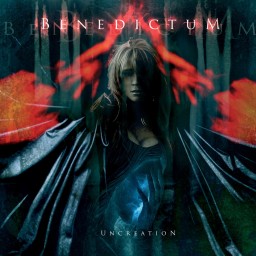
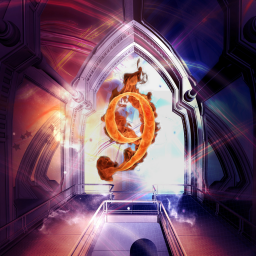 Shadowdoom9 (Andi)
Shadowdoom9 (Andi)
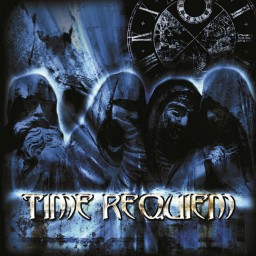
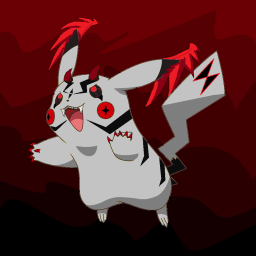 SilentScream213
SilentScream213
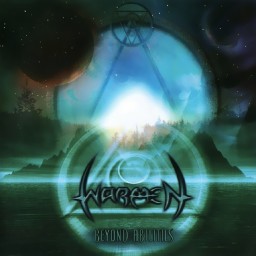
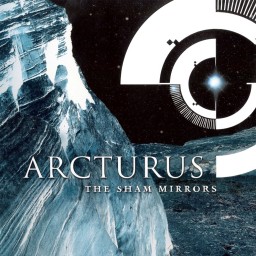
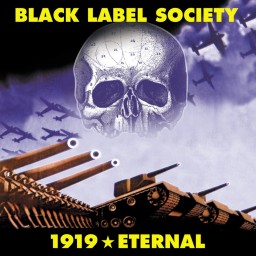
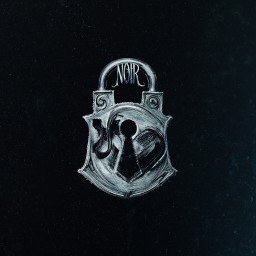
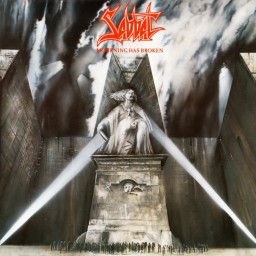
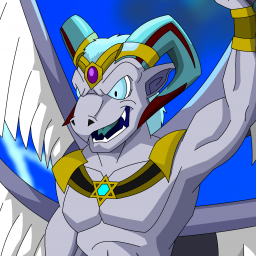 Rexorcist
Rexorcist
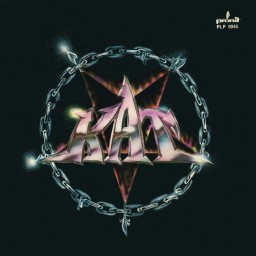
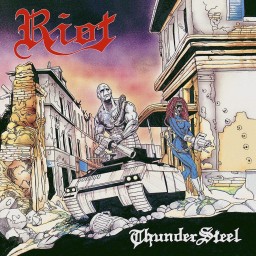
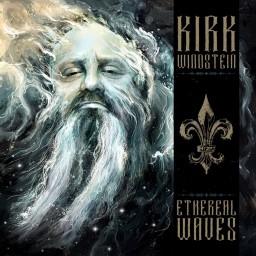
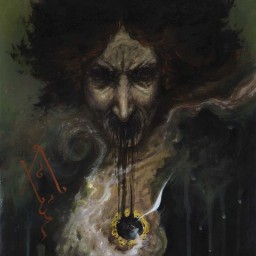 Vinny
Vinny
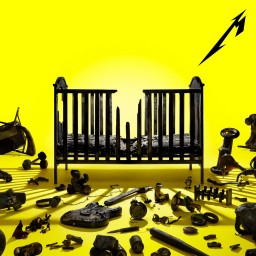
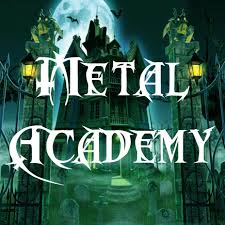 Daniel
Daniel
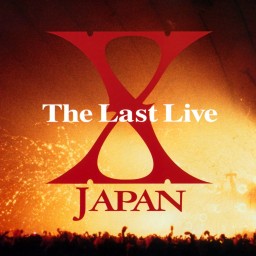
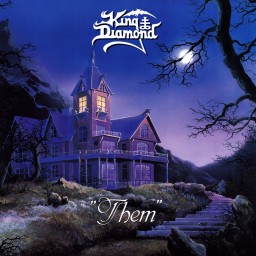
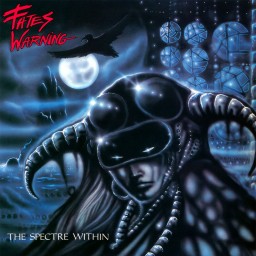
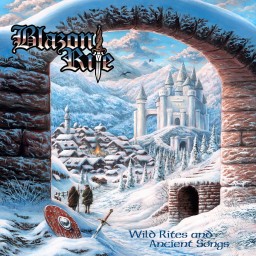
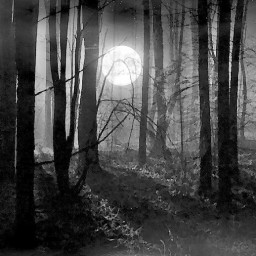 Sonny
Sonny
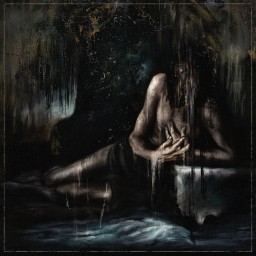
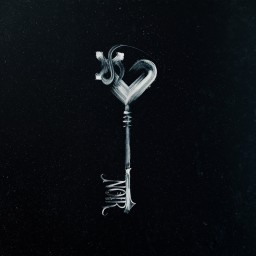
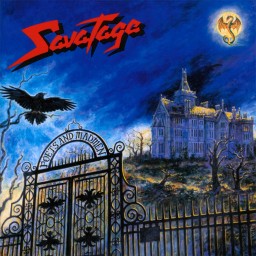
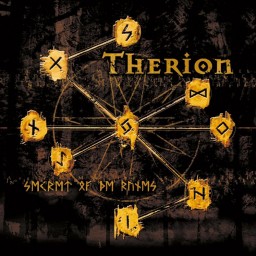
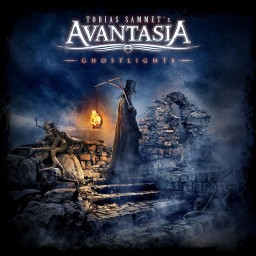
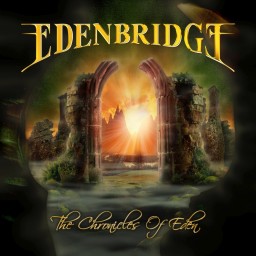
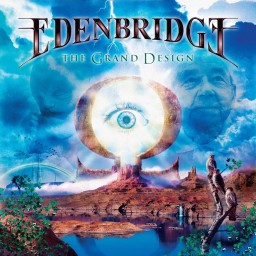
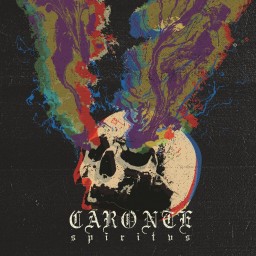
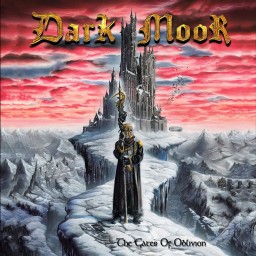
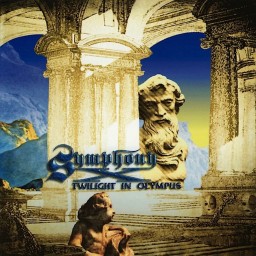
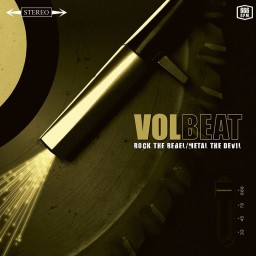
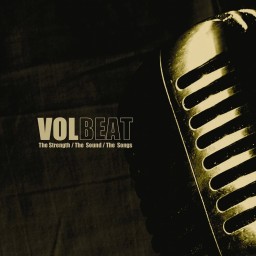
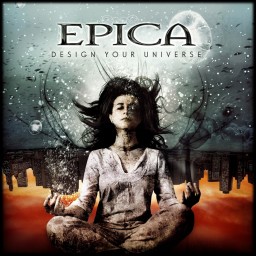
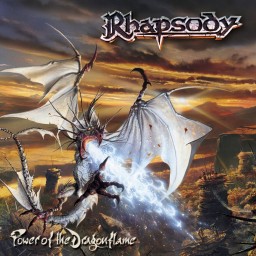
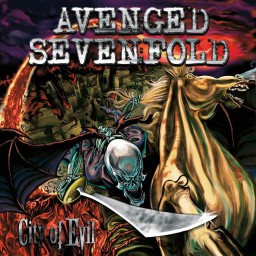
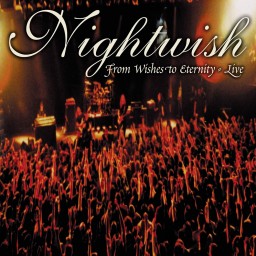
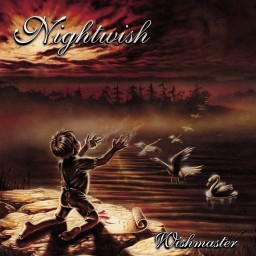
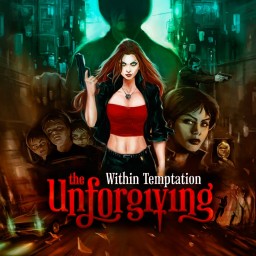
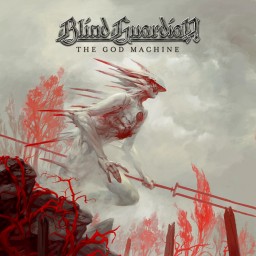
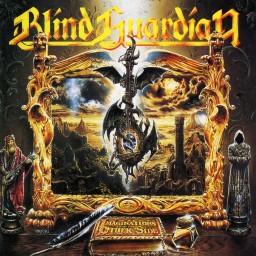
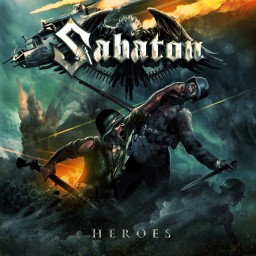
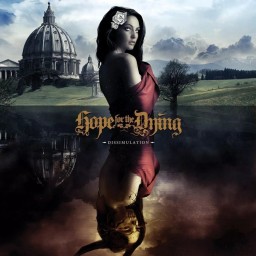
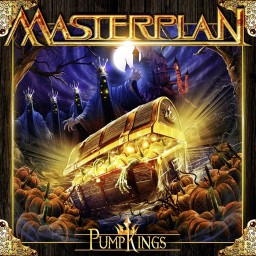
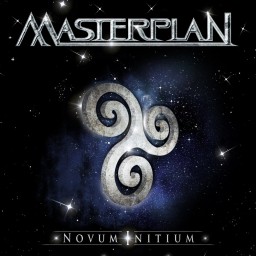
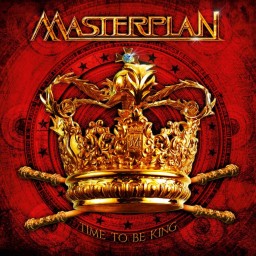
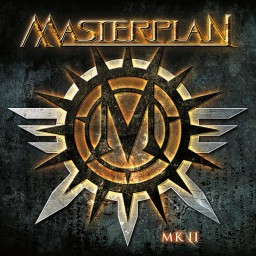
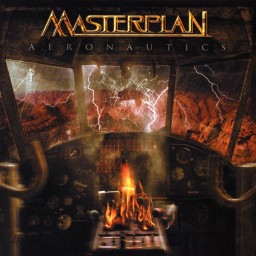
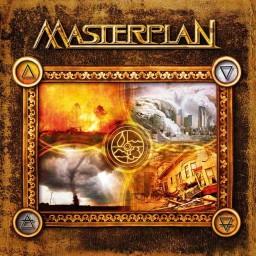
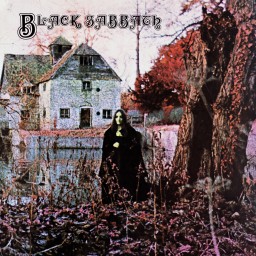
 Saxy S
Saxy S
